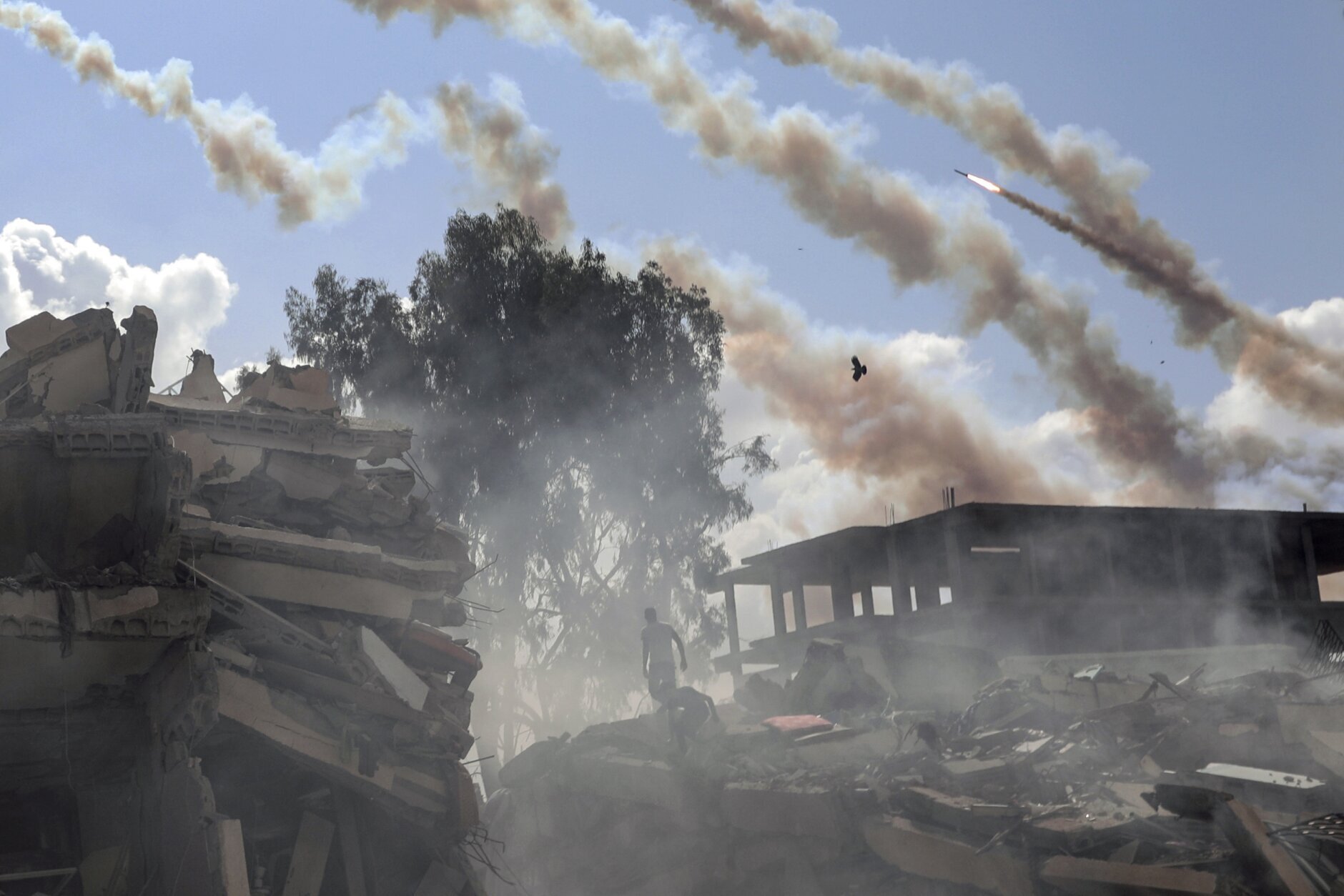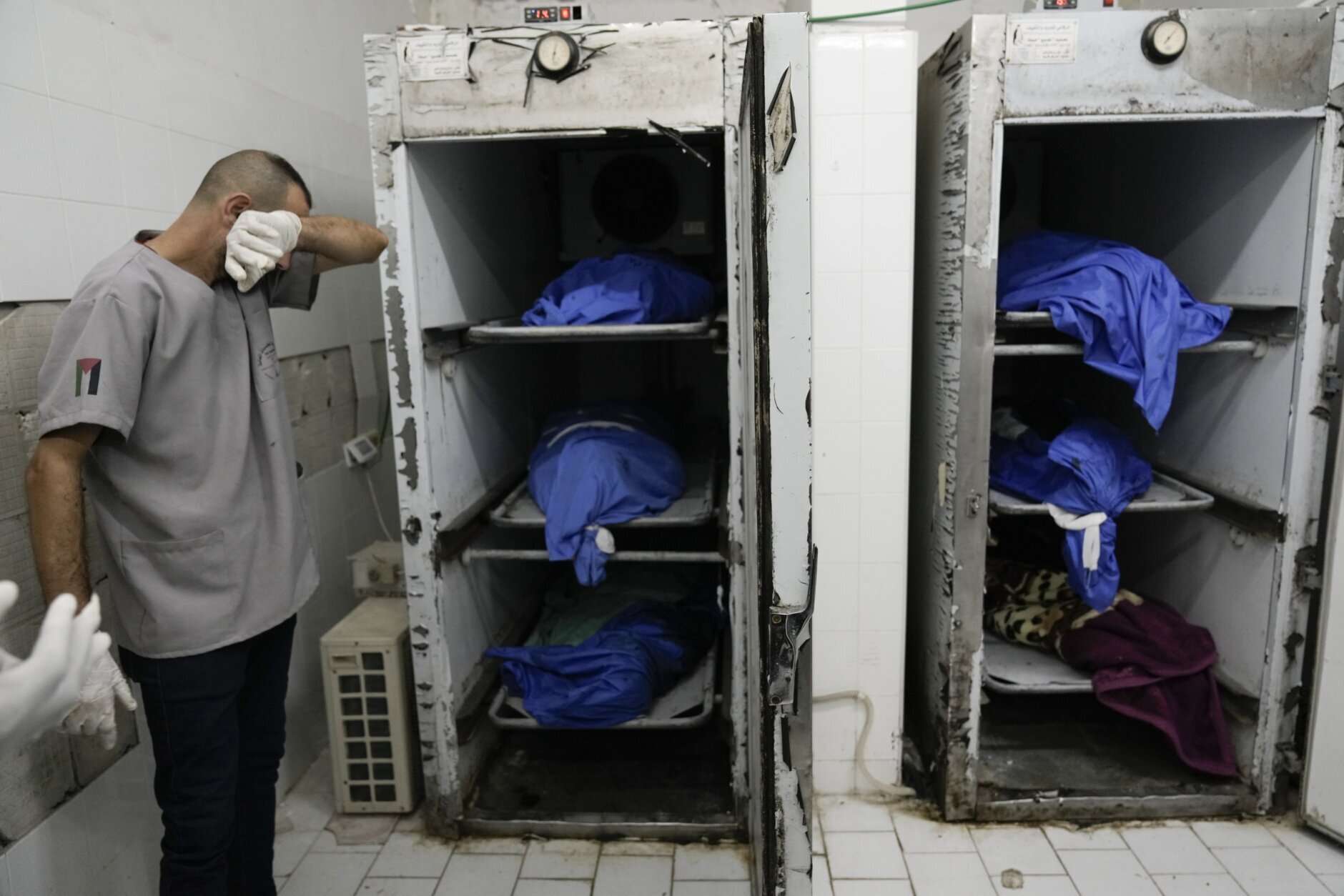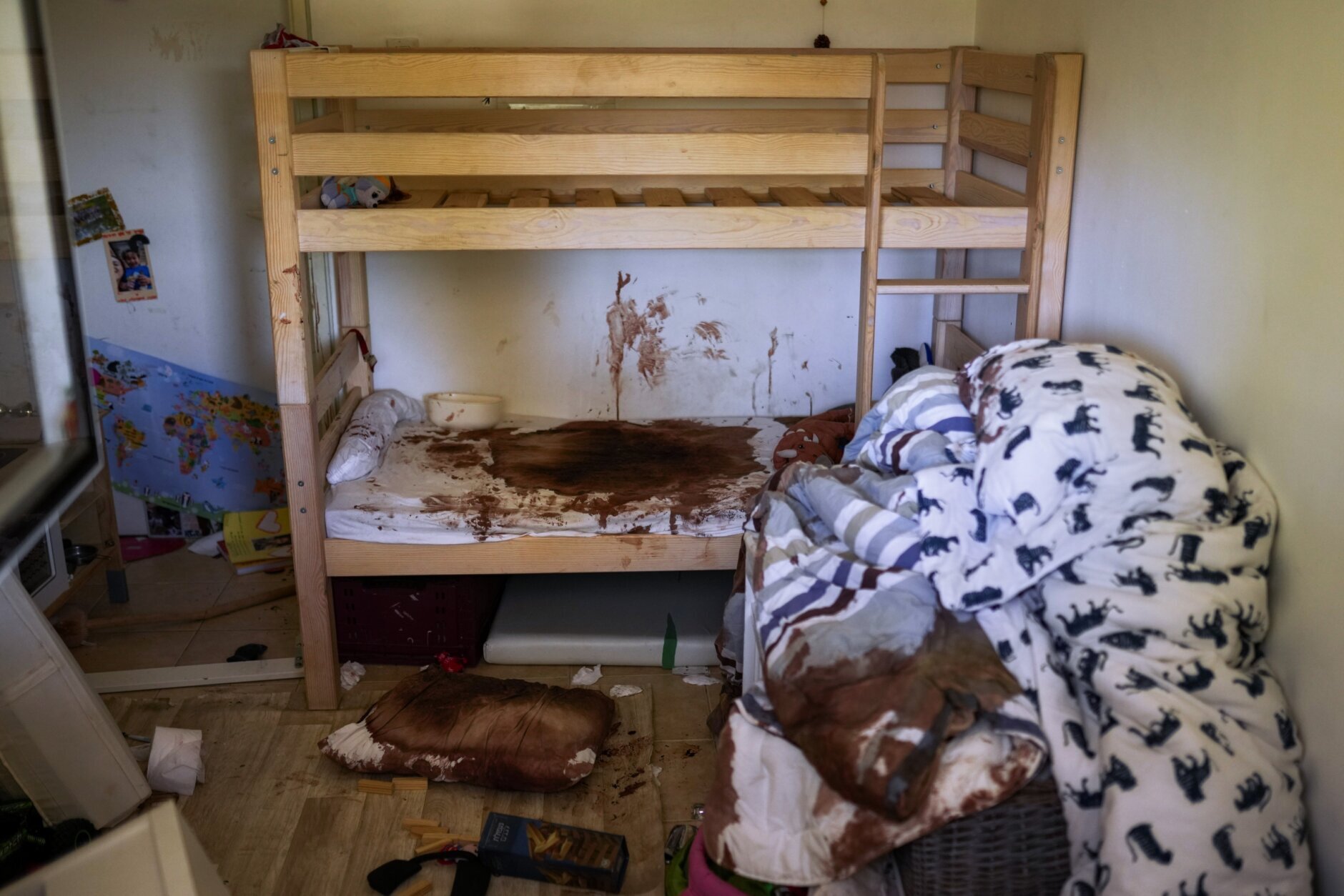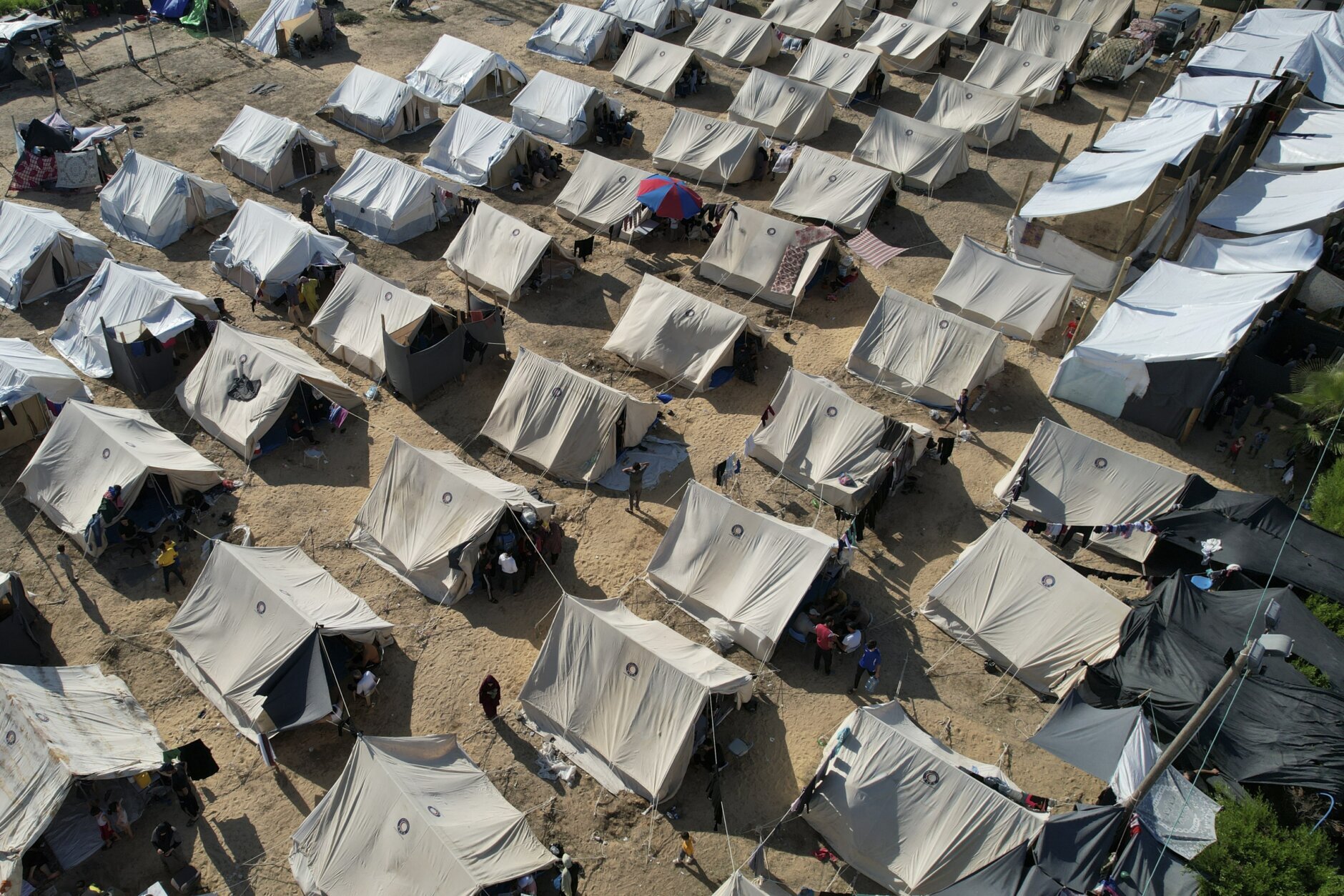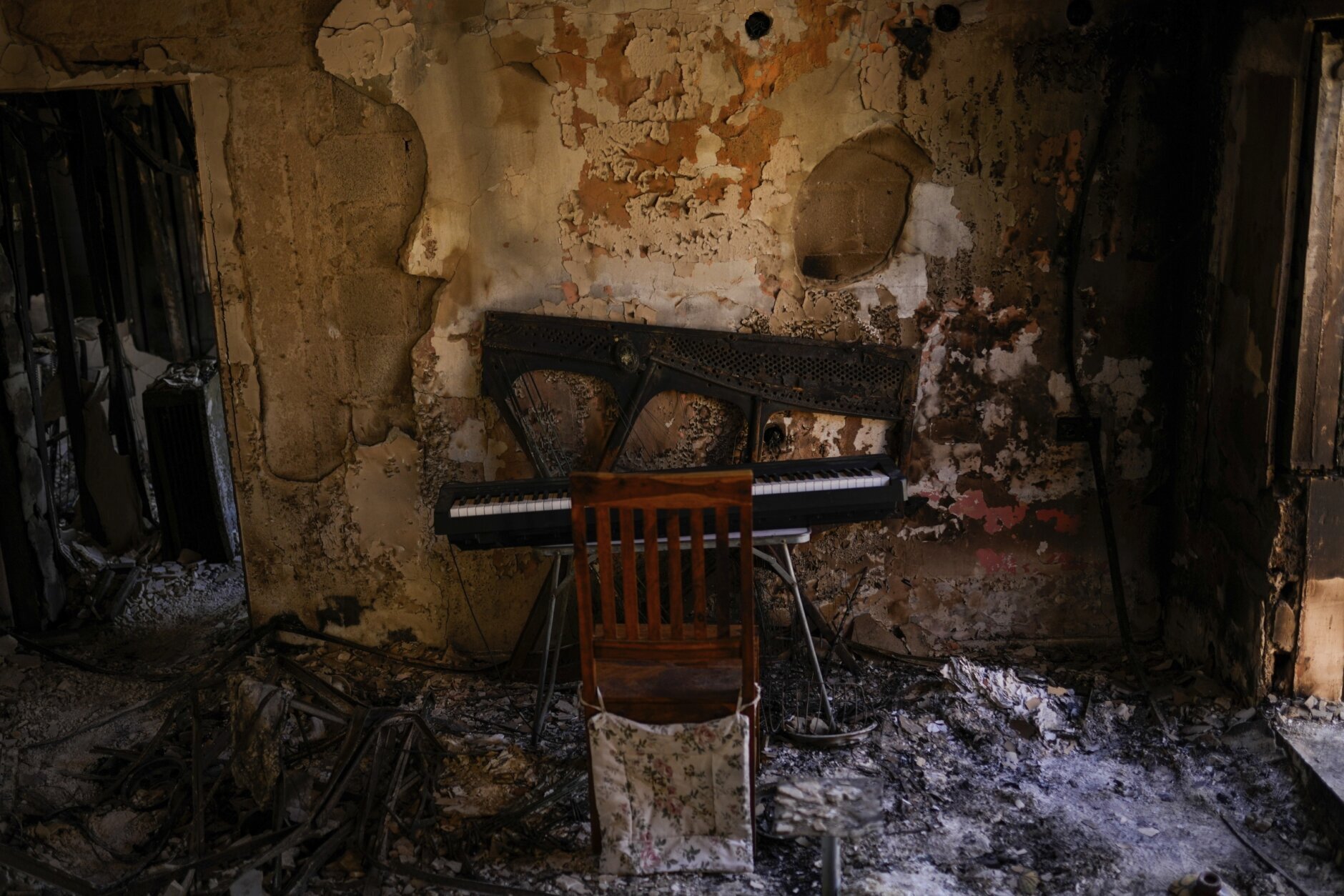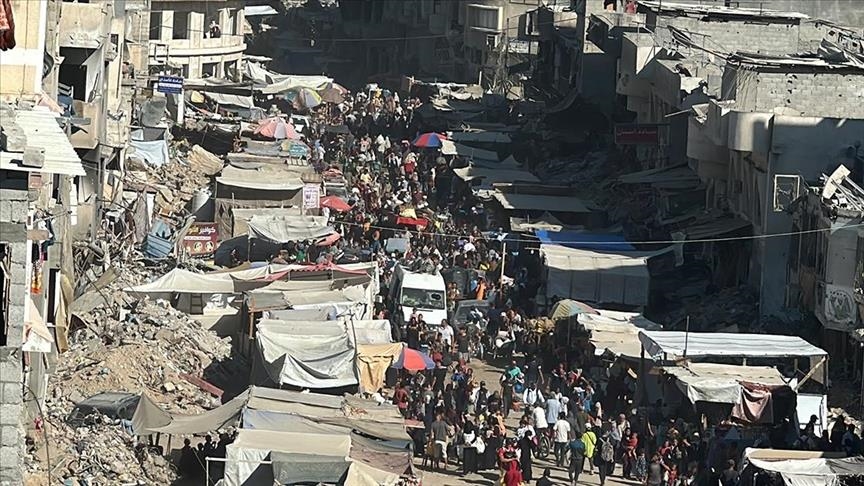BYSERAJ ASSI
05.25.2021
JACOBIN
Rather than crushing their aspirations for freedom, Israeli brutality has united Palestinians more than in decades. Is a third intifada on the horizon?
A Palestinian man sells balloons in front of the rubble of the al-Shuruq building, destroyed by an Israeli air strike, on May 21, 2021, in Gaza City.(MAHMUD HAMS/AFP via Getty Images)
While Israel has finally halted its brutal bombing campaign in Gaza — which left hundreds of Palestinians dead and thousands displaced and homeless — the grim reality of life under Israeli occupation remains unchanged. The siege of Gaza, the rapid settlement expansion in the West Bank, the “apartheid wall” dividing Israel and the West Bank, the forced displacement of stateless Palestinians in Jerusalem, and the racist violence against Palestinian citizens in Israel all persist even as the bombs have gone quiet. On Monday, Mondoweiss reported that Israeli police are arresting Palestinians en masse in Israel and the occupied territory to “settle scores” following massive demonstrations.
But something crucial has changed. After two weeks of protest — including an unprecedented general strike across Palestine — it’s clear that a new movement of popular resistance has emerged and that Palestinians are more unified than in decades. This cross-border movement both echoes previous uprisings in Palestine and seeks to transcend them.
And nothing looms larger in the collective memory of Palestinians than the two intifadas.
The Two Intifadas
On December 9, 1987, near the Jabalia refugee camp in Gaza, an Israeli military truck crashed into a civilian car, killing four Palestinian workers, three of whom were from the camp. Demonstrations erupted at the Jabalia camp, during which Israeli army patrols fired on Palestinian protesters, killing dozens, including a seventeen-year-old girl who was shot in the head.
For the next six years, Palestinians revolted. The first intifada, or “uprising,” was a grand display of symbolic resistance. Israel, with all its military might, was rocked by the daily spectacle of Palestinian youths throwing rocks and Molotov cocktails at heavily armed Israeli soldiers. Images of Palestinian children facing down Israeli tanks with stones, slingshots, or bare hands shook the world. Boycotts, general strikes, and civil disobedience were used to contest occupation and dispossession.
The intifada was not, as Western media depicted it, a spontaneous uprising. Erupting just as Palestinians marked the twentieth anniversary of the Israeli occupation of Gaza and the West Bank, the uprising was led by a new generation of young Palestinians who grew up under the occupation and experienced its inhumanity up close.
By December 1987, some 2,200 armed Jewish settlers occupied nearly half of the Gaza Strip; 650,000 impoverished Palestinians were crowded into the remaining portion, rendering the Palestinian side of the Gaza Strip one of the most densely populated areas on Earth. The intifada was an uprising against a system that was, as one Israeli historian put it, “founded on brute force, repression and fear, collaboration and treachery, beatings and torture chambers, and daily intimidation, manipulation, and an all-prevailing sense of humiliation among Palestinians.”
Israel responded to the resistance with disproportionate force, deploying over eighty thousand soldiers, killing and wounding thousands of Palestinians (including children), and displacing even more. Israeli defense minister Yitzhak Rabin ordered his army to “break the bones of Palestinians” as part of Israel’s “Iron Fist” policy.
The “stones intifada,” as Palestinian hailed it, was not meant to defeat Israel but to show the world the inhumanity of the occupation — the beatings, shootings, killings, assassinations, curfews, military checkpoints, house demolitions, forced evictions and deportations, uprooting of trees, mass arrests, extended imprisonments, and detentions without trial. It was meant to force Israel to recognize Palestinians as a people with legitimate aspirations for freedom and dignity.
Still, the revolt was crushed mercilessly. Over the course of the uprising, the Jewish settler population in the West Bank more than doubled, opening a new chapter in Israel’s sweeping colonization of Palestine and Palestinian dispossession.
The intifada left lasting scars in Palestinians’ memory. Trapped in the iron cage created by Israel, and caught between Arab silence and international apathy, Palestinians were abandoned to their fate, and the prospect of a renewed Palestinian uprising became a distant mirage.
Until the second intifada.
On September 28, 2000, Israeli defense minister Ariel Sharon, heavily guarded by Israeli soldiers and policemen, staged a provocative visit to the al-Aqsa Mosque in Jerusalem. Within hours, seven Palestinian protesters defending the holy site were killed by the security forces guarding Sharon.
The following day, Israeli soldiers shot dead twelve-year-old Muhammad al-Durrah in his father’s arms. On the fourth day, twelve Palestinians were felled by Israeli bullets, missiles, tanks, and helicopters.
Within days, the uprising spread all over Palestine and across Israel. The second intifada was underway.
Those who witnessed the failure of the Camp David Summit that summer, where Bill Clinton brought together Israeli prime minister Ehud Barak and Palestinian leader Yasser Arafat, were hardly surprised. For years, millions of disenchanted Palestinians had watched in dismay as Israel, in violation of its peace accord with the Palestinian Liberation Organization, reoccupied the West Bank, annexed East Jerusalem, and expanded its illegal settlements into Palestinian lands.
The intifada laid bare the futility of the so-called peace process. After a decade of negotiations, Palestinians came to realize that the road to freedom and liberation would come not through lavish hotels in Western capitals and negotiating tables but through popular resistance. And rather than mere statehood, their struggle was now for freedom, equality, and basic human rights — a struggle against occupation and apartheid.
The second intifada tore down the intercolonial boundaries demarcated by Israel, as Palestinians inside Israel revolted in solidarity with Palestinians across the border, staging mass protests and strikes and blocking major streets in cities like Haifa and Jaffa. Thirteen of those Palestinians were killed by the Israeli police — a brutal reminder that the promise of Palestinian “citizenship” was nothing but a mere political fiction.
The second intifada was more forceful in character than the first. In an attempt to compel Israel to cease its attacks against civilians and withdraw its forces from Palestinian territories, Palestinian groups, notably Hamas and Islamic Jihad, launched counterattacks inside Israel, including suicide attacks. Israel retaliated by launching attacks against Palestinian villages, towns, and cities, and embarked on a campaign of assassinations, targeting field operatives and political leaders of the intifada, including members of the Palestinian Authority.
Like the first intifada, the second intifada, or “the Aqsa intifada,” was crushed ruthlessly. In a five-year span, more than three thousand Palestinians were killed by Israeli forces, including a dozen Palestinian citizens of Israel, and more than ten thousand Palestinian children were wounded.
Palestinians emerged from the uprising with dashed aspirations for freedom and independence. Before the intifada had even been quelled, Israel had started building its apartheid wall — cutting deep into Palestinian territory in the West Bank and rewarding Jewish settlers with the annexed land.
The Next Intifada?
Today, the prospect of Palestinian statehood is virtually dead, thanks to Israel’s unceasing expansion into Palestinian land and the rapid proliferation of Jewish-only settlements in the West Bank and Jerusalem.
From the systemic disenfranchisement of Palestinian citizens inside the country to the constant displacement of Palestinians in the West Bank and Gaza, from the daily oppression of those living behind its apartheid wall to the routine humiliation of those living under its apartheid laws — including the hundreds of thousands of Palestinians living in a stateless limbo in East Jerusalem — Israel continues to brazenly deny Palestinians their basic rights.
Yet rather than eliminating the movement for liberation, Israel’s brutality has begun to unite those subject to its oppressive whims. Palestinians are no longer accepting the segregationist apparatus invented by Israel — a multilayered apartheid system that seeks not only to segregate Palestinians from Jewish settlers but to divide Palestinians themselves into “West Bankers,” “Gazans,” “Israeli citizens,” “Jerusalemites,” and “refugees.” Today, Palestinians everywhere are beginning to stand as one people, united by a shared memory, shared destiny, shared sense of loss and oppression, and shared aspirations for freedom and justice.
As someone who lived through the first and second intifadas, the current protests hit me with a vivid sense of déjà vu. It’s as if every ten or twenty years so a new Palestinian generation rises up in revolt.
Perhaps a third intifada is on the horizon.
Rather than crushing their aspirations for freedom, Israeli brutality has united Palestinians more than in decades. Is a third intifada on the horizon?

A Palestinian man sells balloons in front of the rubble of the al-Shuruq building, destroyed by an Israeli air strike, on May 21, 2021, in Gaza City.(MAHMUD HAMS/AFP via Getty Images)
While Israel has finally halted its brutal bombing campaign in Gaza — which left hundreds of Palestinians dead and thousands displaced and homeless — the grim reality of life under Israeli occupation remains unchanged. The siege of Gaza, the rapid settlement expansion in the West Bank, the “apartheid wall” dividing Israel and the West Bank, the forced displacement of stateless Palestinians in Jerusalem, and the racist violence against Palestinian citizens in Israel all persist even as the bombs have gone quiet. On Monday, Mondoweiss reported that Israeli police are arresting Palestinians en masse in Israel and the occupied territory to “settle scores” following massive demonstrations.
But something crucial has changed. After two weeks of protest — including an unprecedented general strike across Palestine — it’s clear that a new movement of popular resistance has emerged and that Palestinians are more unified than in decades. This cross-border movement both echoes previous uprisings in Palestine and seeks to transcend them.
And nothing looms larger in the collective memory of Palestinians than the two intifadas.
The Two Intifadas
On December 9, 1987, near the Jabalia refugee camp in Gaza, an Israeli military truck crashed into a civilian car, killing four Palestinian workers, three of whom were from the camp. Demonstrations erupted at the Jabalia camp, during which Israeli army patrols fired on Palestinian protesters, killing dozens, including a seventeen-year-old girl who was shot in the head.
For the next six years, Palestinians revolted. The first intifada, or “uprising,” was a grand display of symbolic resistance. Israel, with all its military might, was rocked by the daily spectacle of Palestinian youths throwing rocks and Molotov cocktails at heavily armed Israeli soldiers. Images of Palestinian children facing down Israeli tanks with stones, slingshots, or bare hands shook the world. Boycotts, general strikes, and civil disobedience were used to contest occupation and dispossession.
The intifada was not, as Western media depicted it, a spontaneous uprising. Erupting just as Palestinians marked the twentieth anniversary of the Israeli occupation of Gaza and the West Bank, the uprising was led by a new generation of young Palestinians who grew up under the occupation and experienced its inhumanity up close.
By December 1987, some 2,200 armed Jewish settlers occupied nearly half of the Gaza Strip; 650,000 impoverished Palestinians were crowded into the remaining portion, rendering the Palestinian side of the Gaza Strip one of the most densely populated areas on Earth. The intifada was an uprising against a system that was, as one Israeli historian put it, “founded on brute force, repression and fear, collaboration and treachery, beatings and torture chambers, and daily intimidation, manipulation, and an all-prevailing sense of humiliation among Palestinians.”
Israel responded to the resistance with disproportionate force, deploying over eighty thousand soldiers, killing and wounding thousands of Palestinians (including children), and displacing even more. Israeli defense minister Yitzhak Rabin ordered his army to “break the bones of Palestinians” as part of Israel’s “Iron Fist” policy.
The “stones intifada,” as Palestinian hailed it, was not meant to defeat Israel but to show the world the inhumanity of the occupation — the beatings, shootings, killings, assassinations, curfews, military checkpoints, house demolitions, forced evictions and deportations, uprooting of trees, mass arrests, extended imprisonments, and detentions without trial. It was meant to force Israel to recognize Palestinians as a people with legitimate aspirations for freedom and dignity.
Still, the revolt was crushed mercilessly. Over the course of the uprising, the Jewish settler population in the West Bank more than doubled, opening a new chapter in Israel’s sweeping colonization of Palestine and Palestinian dispossession.
The intifada left lasting scars in Palestinians’ memory. Trapped in the iron cage created by Israel, and caught between Arab silence and international apathy, Palestinians were abandoned to their fate, and the prospect of a renewed Palestinian uprising became a distant mirage.
Until the second intifada.
On September 28, 2000, Israeli defense minister Ariel Sharon, heavily guarded by Israeli soldiers and policemen, staged a provocative visit to the al-Aqsa Mosque in Jerusalem. Within hours, seven Palestinian protesters defending the holy site were killed by the security forces guarding Sharon.
The following day, Israeli soldiers shot dead twelve-year-old Muhammad al-Durrah in his father’s arms. On the fourth day, twelve Palestinians were felled by Israeli bullets, missiles, tanks, and helicopters.
Within days, the uprising spread all over Palestine and across Israel. The second intifada was underway.
Those who witnessed the failure of the Camp David Summit that summer, where Bill Clinton brought together Israeli prime minister Ehud Barak and Palestinian leader Yasser Arafat, were hardly surprised. For years, millions of disenchanted Palestinians had watched in dismay as Israel, in violation of its peace accord with the Palestinian Liberation Organization, reoccupied the West Bank, annexed East Jerusalem, and expanded its illegal settlements into Palestinian lands.
The intifada laid bare the futility of the so-called peace process. After a decade of negotiations, Palestinians came to realize that the road to freedom and liberation would come not through lavish hotels in Western capitals and negotiating tables but through popular resistance. And rather than mere statehood, their struggle was now for freedom, equality, and basic human rights — a struggle against occupation and apartheid.
The second intifada tore down the intercolonial boundaries demarcated by Israel, as Palestinians inside Israel revolted in solidarity with Palestinians across the border, staging mass protests and strikes and blocking major streets in cities like Haifa and Jaffa. Thirteen of those Palestinians were killed by the Israeli police — a brutal reminder that the promise of Palestinian “citizenship” was nothing but a mere political fiction.
The second intifada was more forceful in character than the first. In an attempt to compel Israel to cease its attacks against civilians and withdraw its forces from Palestinian territories, Palestinian groups, notably Hamas and Islamic Jihad, launched counterattacks inside Israel, including suicide attacks. Israel retaliated by launching attacks against Palestinian villages, towns, and cities, and embarked on a campaign of assassinations, targeting field operatives and political leaders of the intifada, including members of the Palestinian Authority.
Like the first intifada, the second intifada, or “the Aqsa intifada,” was crushed ruthlessly. In a five-year span, more than three thousand Palestinians were killed by Israeli forces, including a dozen Palestinian citizens of Israel, and more than ten thousand Palestinian children were wounded.
Palestinians emerged from the uprising with dashed aspirations for freedom and independence. Before the intifada had even been quelled, Israel had started building its apartheid wall — cutting deep into Palestinian territory in the West Bank and rewarding Jewish settlers with the annexed land.
The Next Intifada?
Today, the prospect of Palestinian statehood is virtually dead, thanks to Israel’s unceasing expansion into Palestinian land and the rapid proliferation of Jewish-only settlements in the West Bank and Jerusalem.
From the systemic disenfranchisement of Palestinian citizens inside the country to the constant displacement of Palestinians in the West Bank and Gaza, from the daily oppression of those living behind its apartheid wall to the routine humiliation of those living under its apartheid laws — including the hundreds of thousands of Palestinians living in a stateless limbo in East Jerusalem — Israel continues to brazenly deny Palestinians their basic rights.
Yet rather than eliminating the movement for liberation, Israel’s brutality has begun to unite those subject to its oppressive whims. Palestinians are no longer accepting the segregationist apparatus invented by Israel — a multilayered apartheid system that seeks not only to segregate Palestinians from Jewish settlers but to divide Palestinians themselves into “West Bankers,” “Gazans,” “Israeli citizens,” “Jerusalemites,” and “refugees.” Today, Palestinians everywhere are beginning to stand as one people, united by a shared memory, shared destiny, shared sense of loss and oppression, and shared aspirations for freedom and justice.
As someone who lived through the first and second intifadas, the current protests hit me with a vivid sense of déjà vu. It’s as if every ten or twenty years so a new Palestinian generation rises up in revolt.
Perhaps a third intifada is on the horizon.
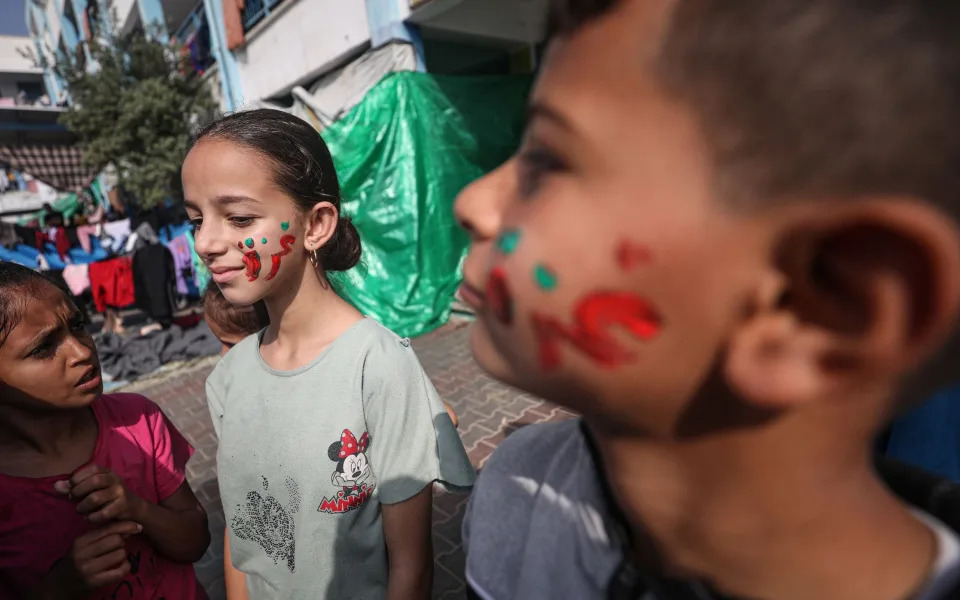
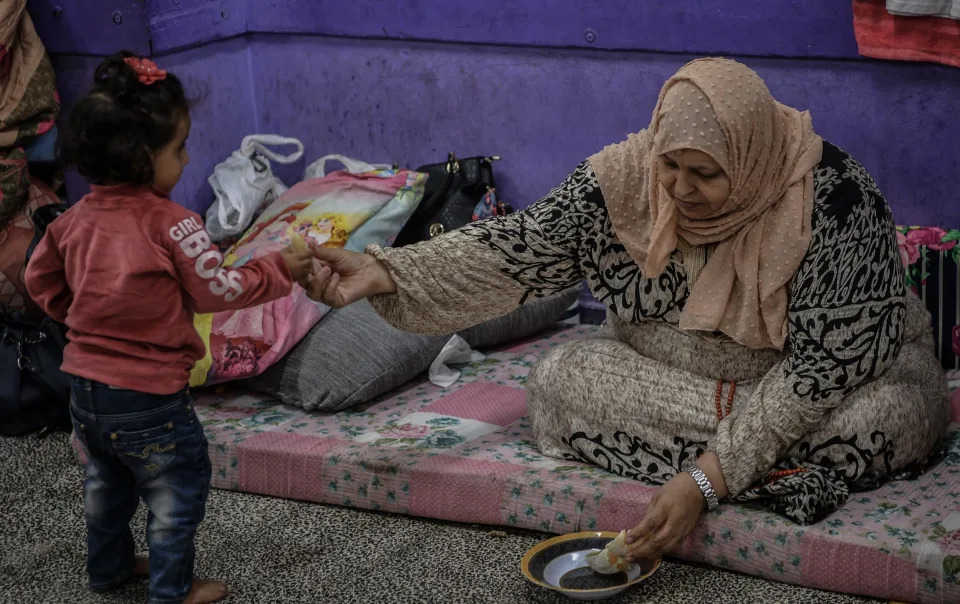
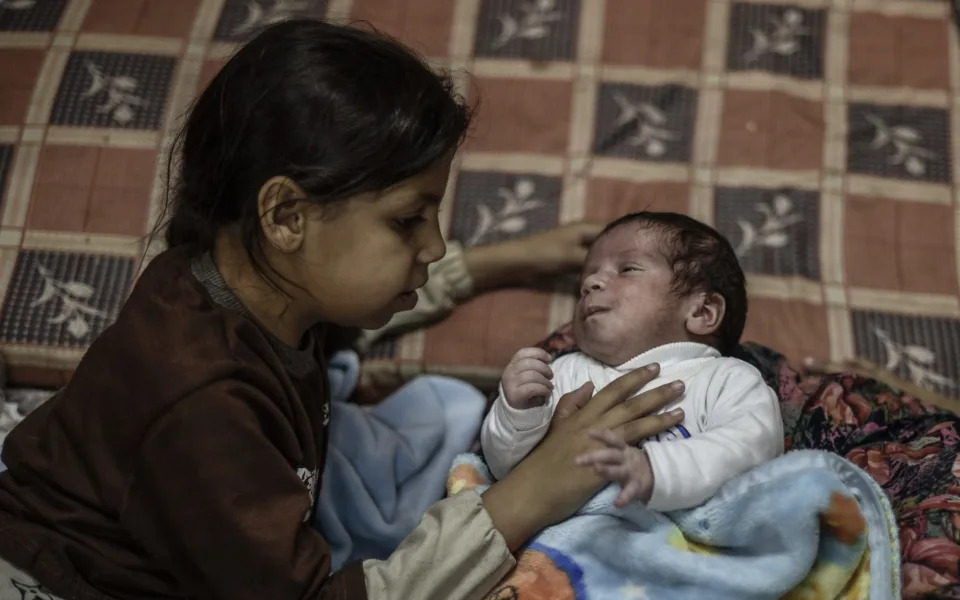
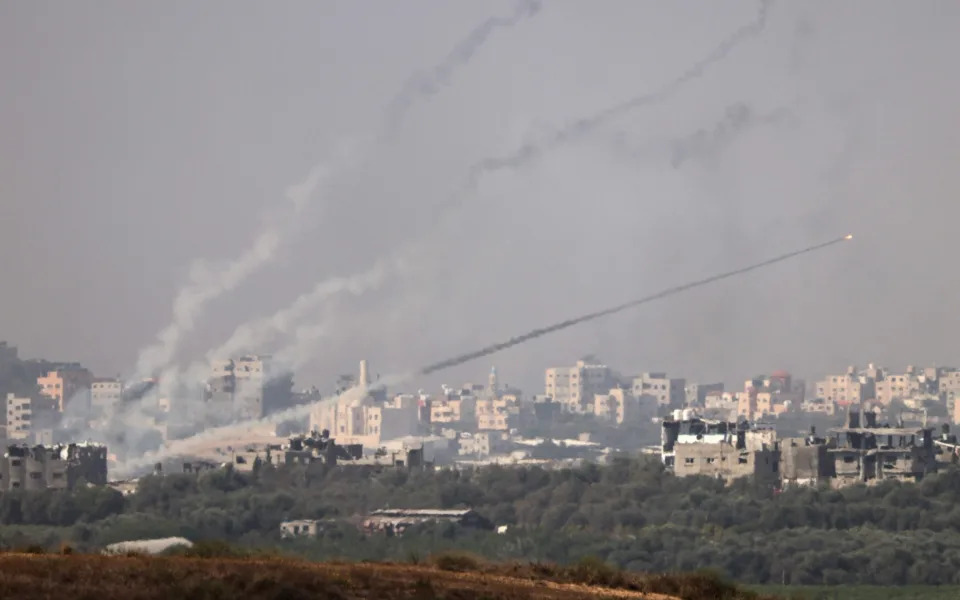
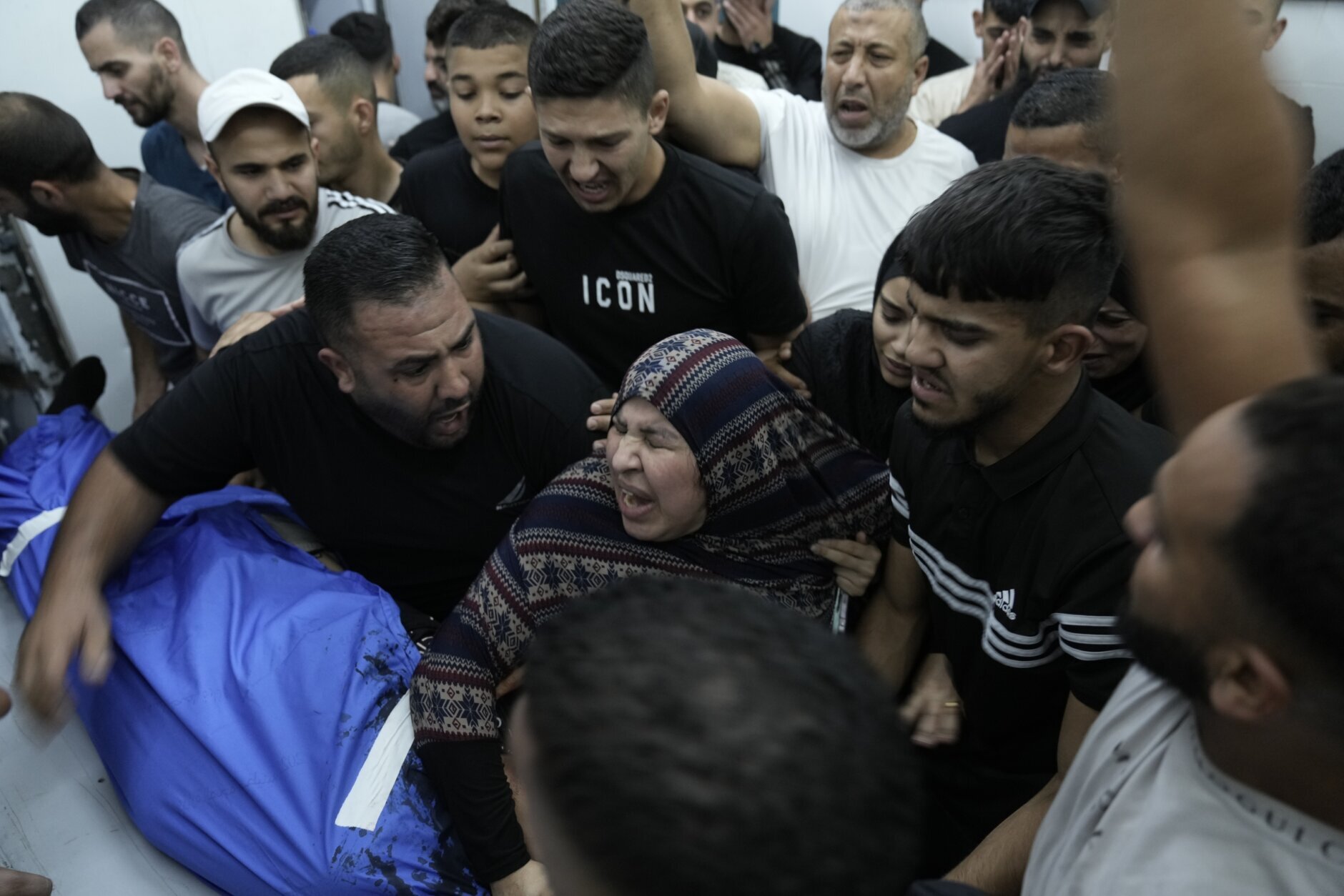
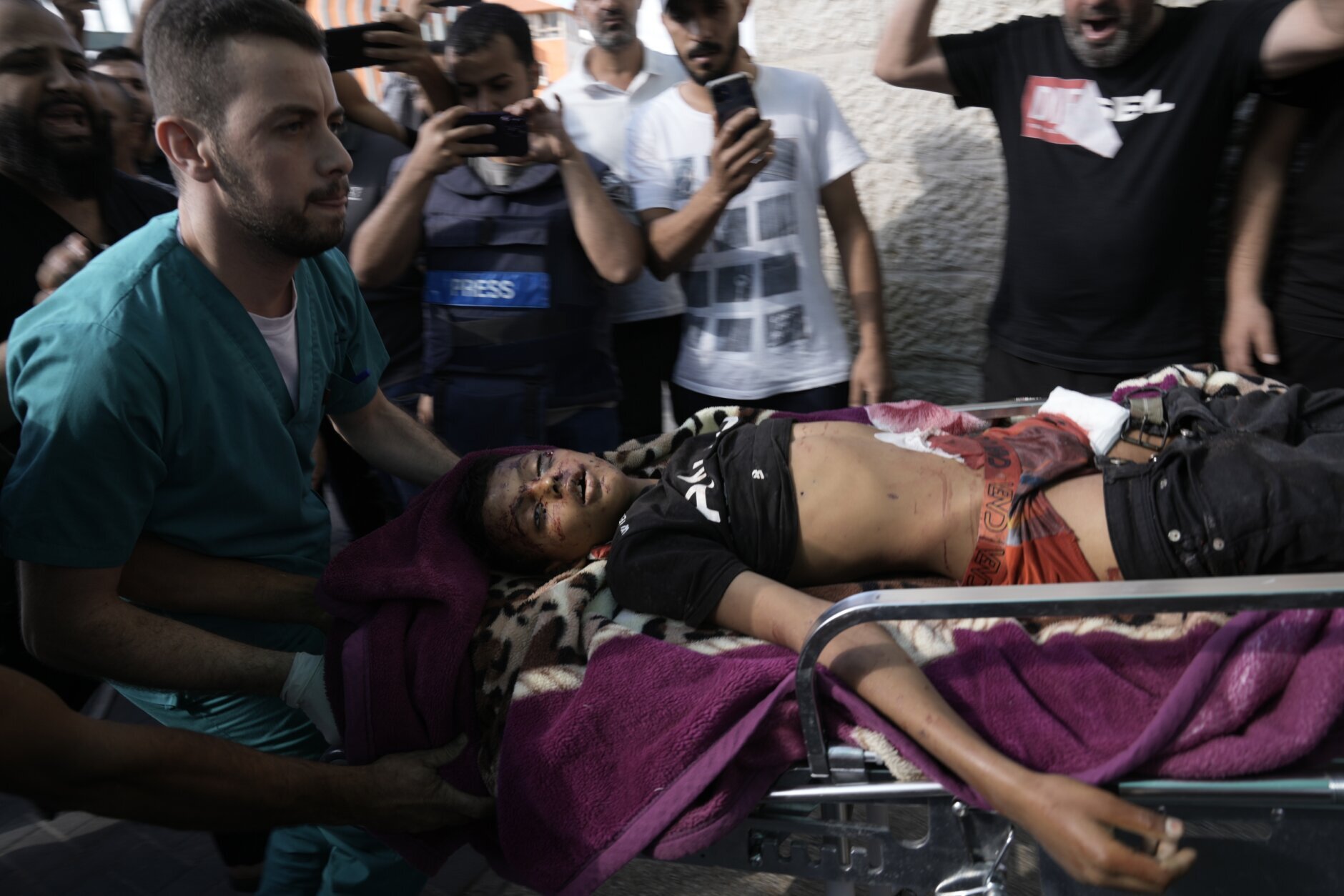 I
I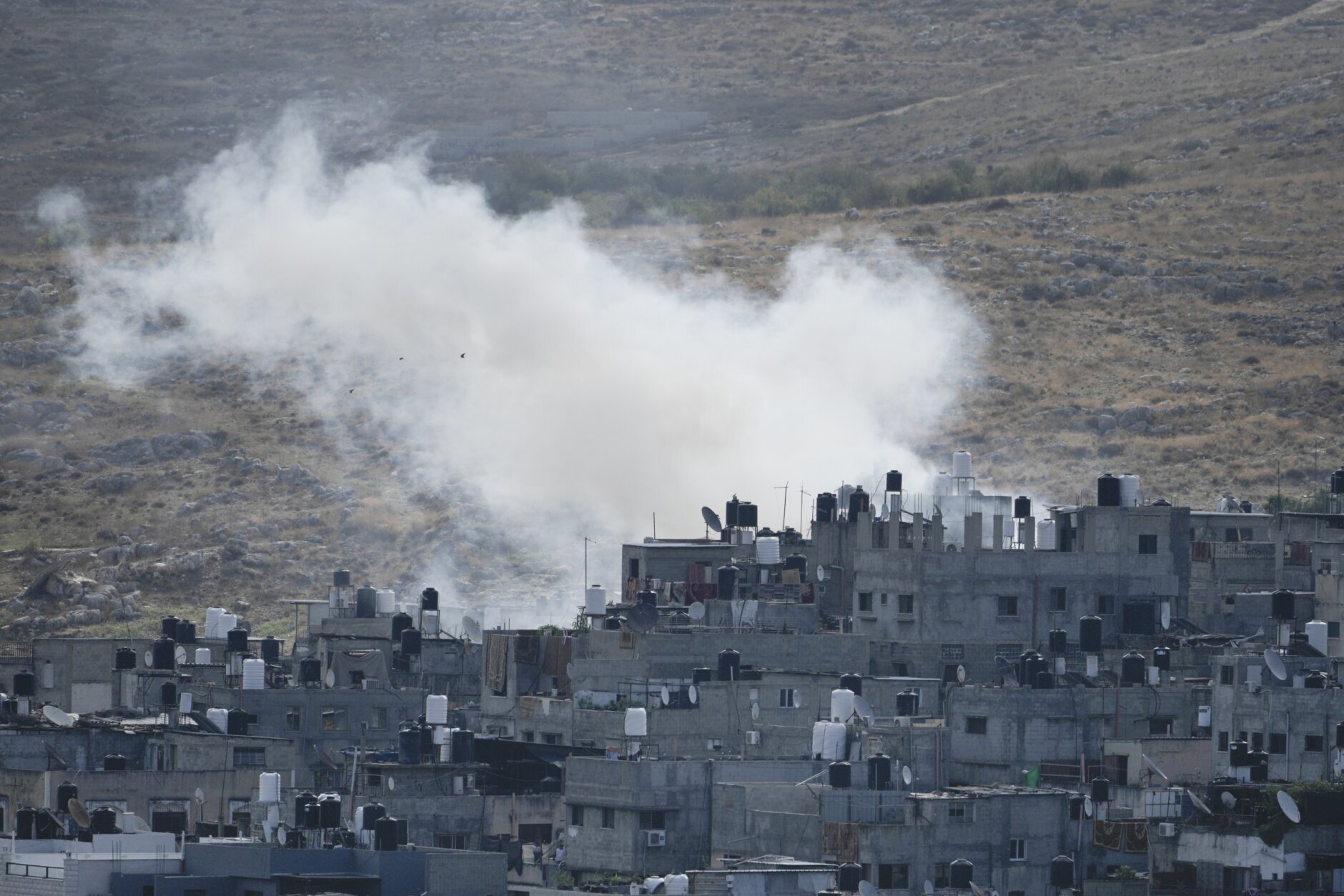
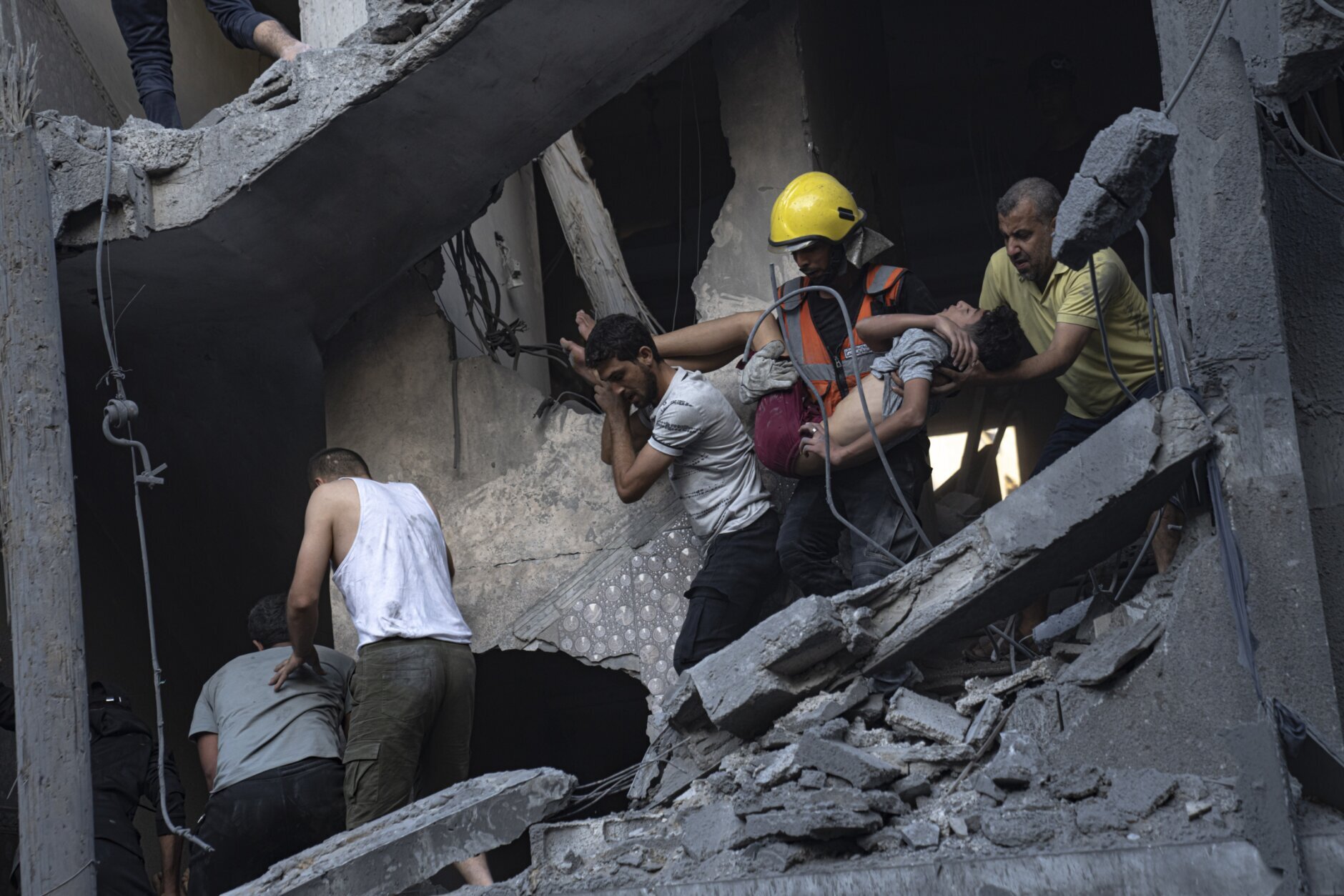
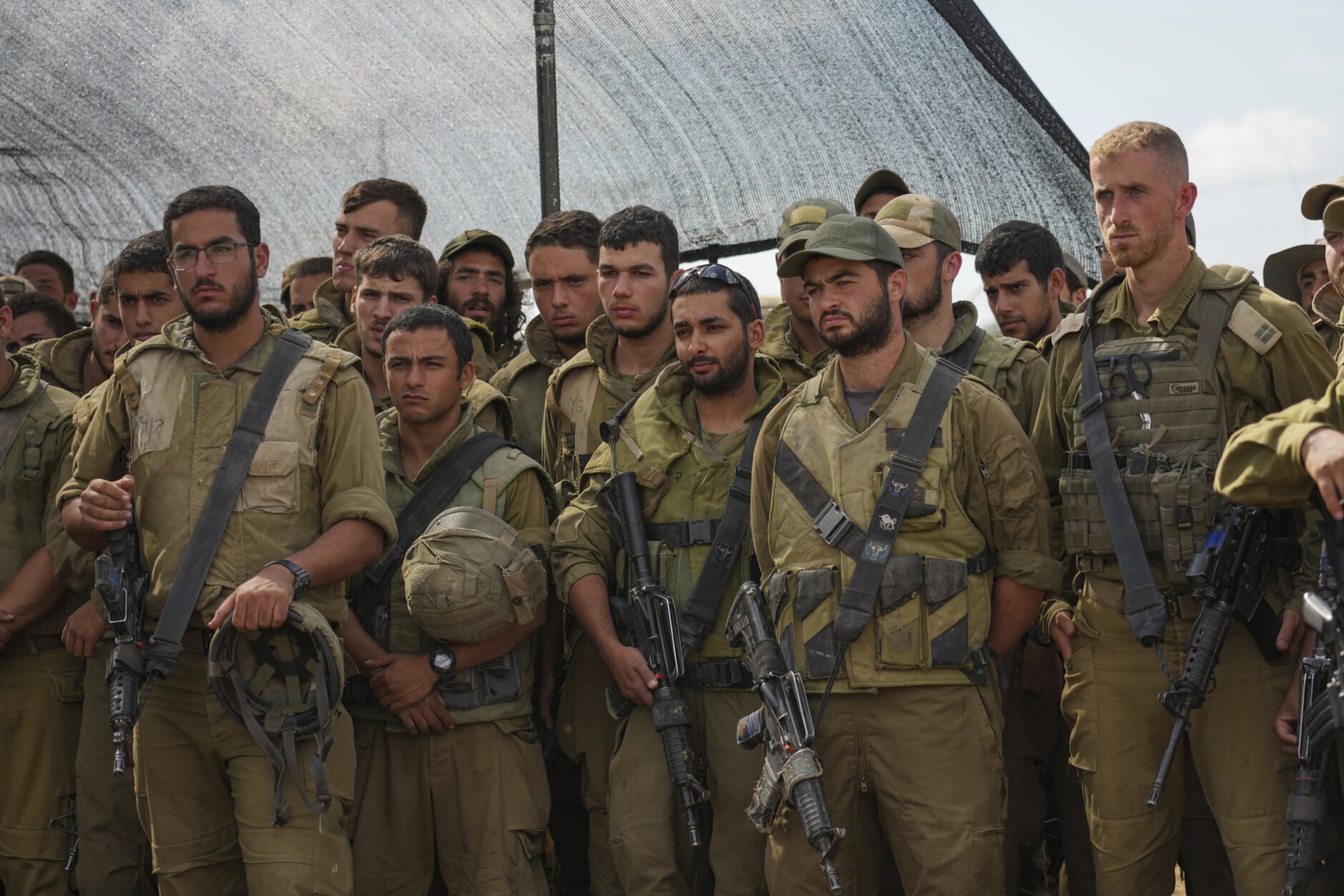
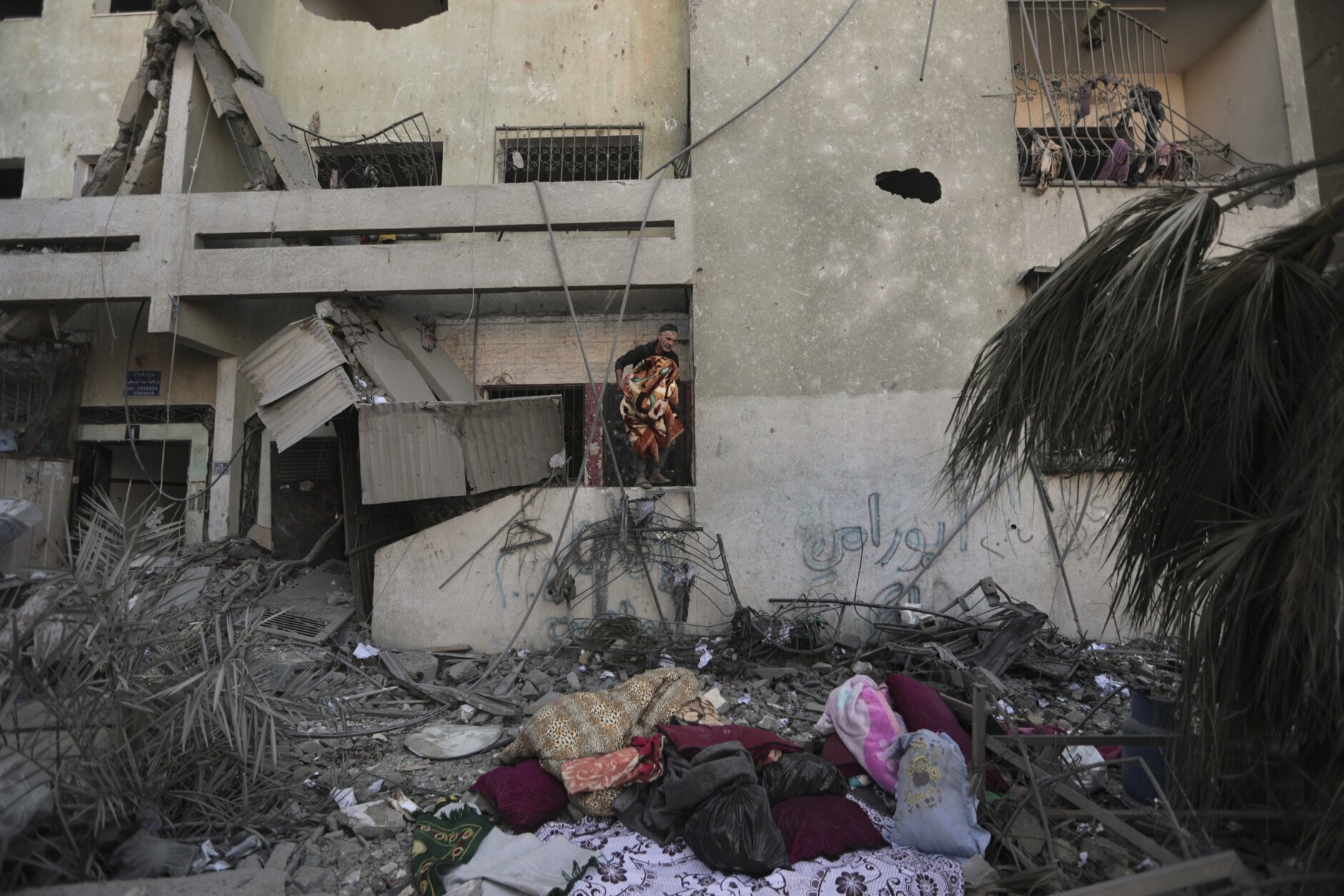
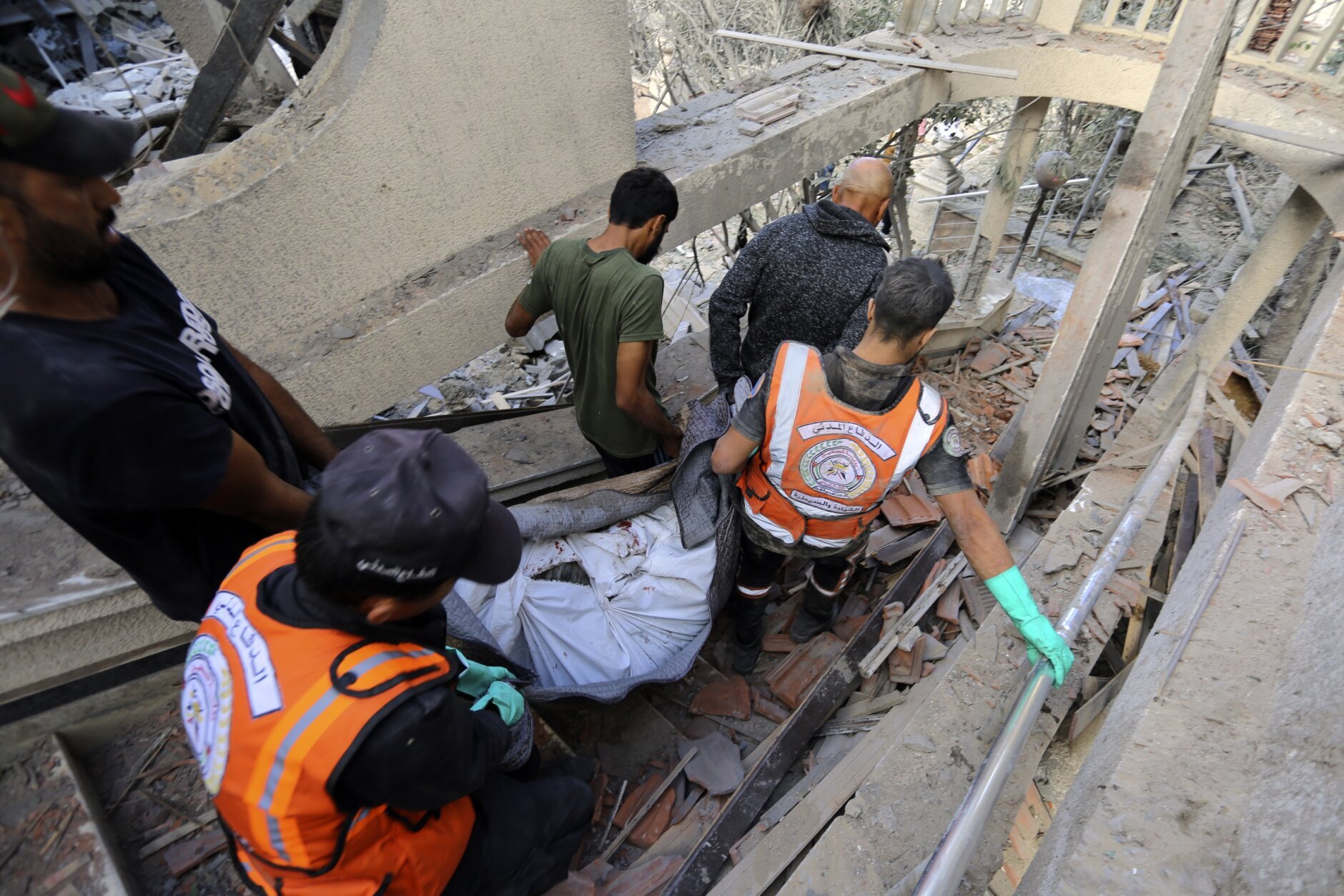
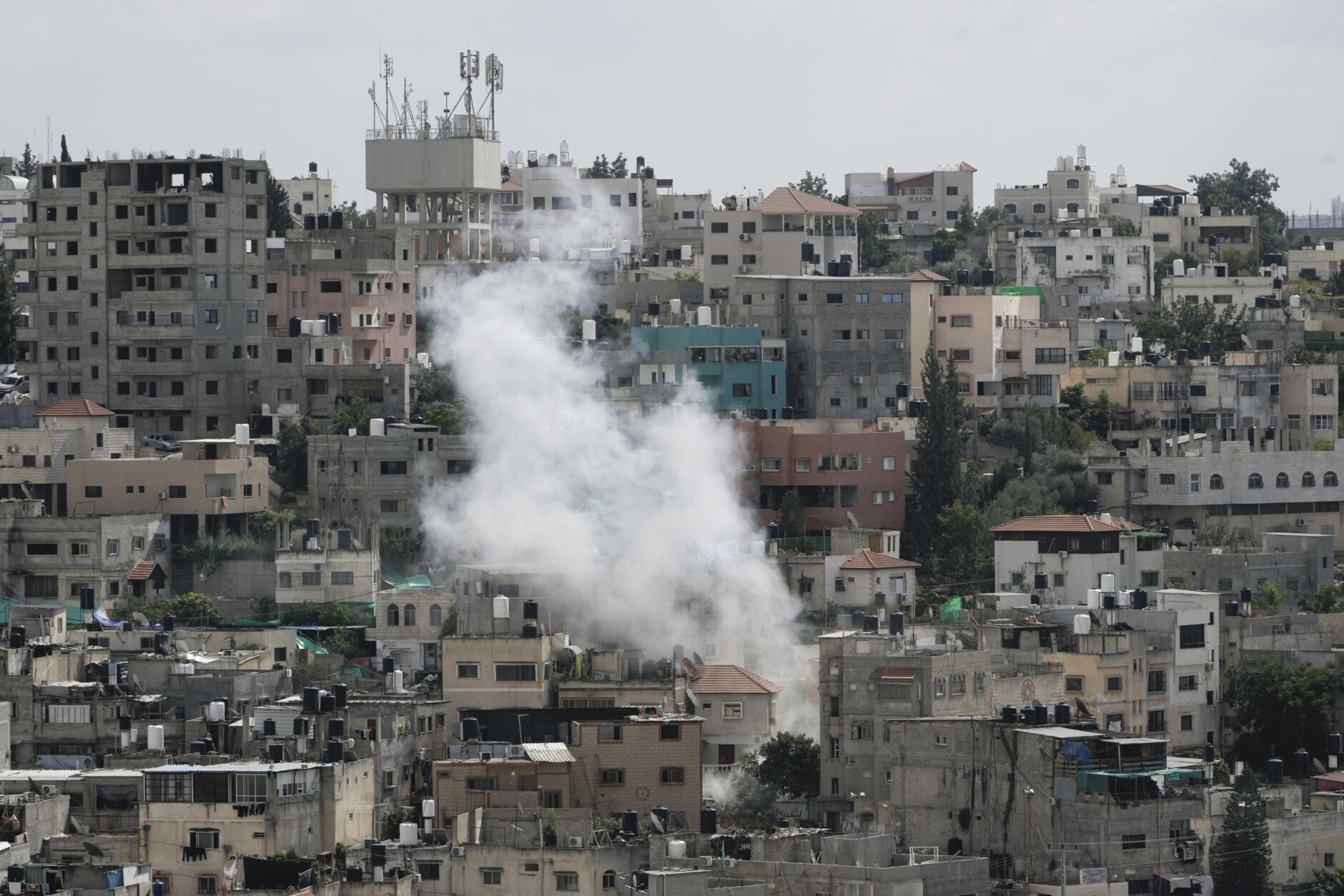
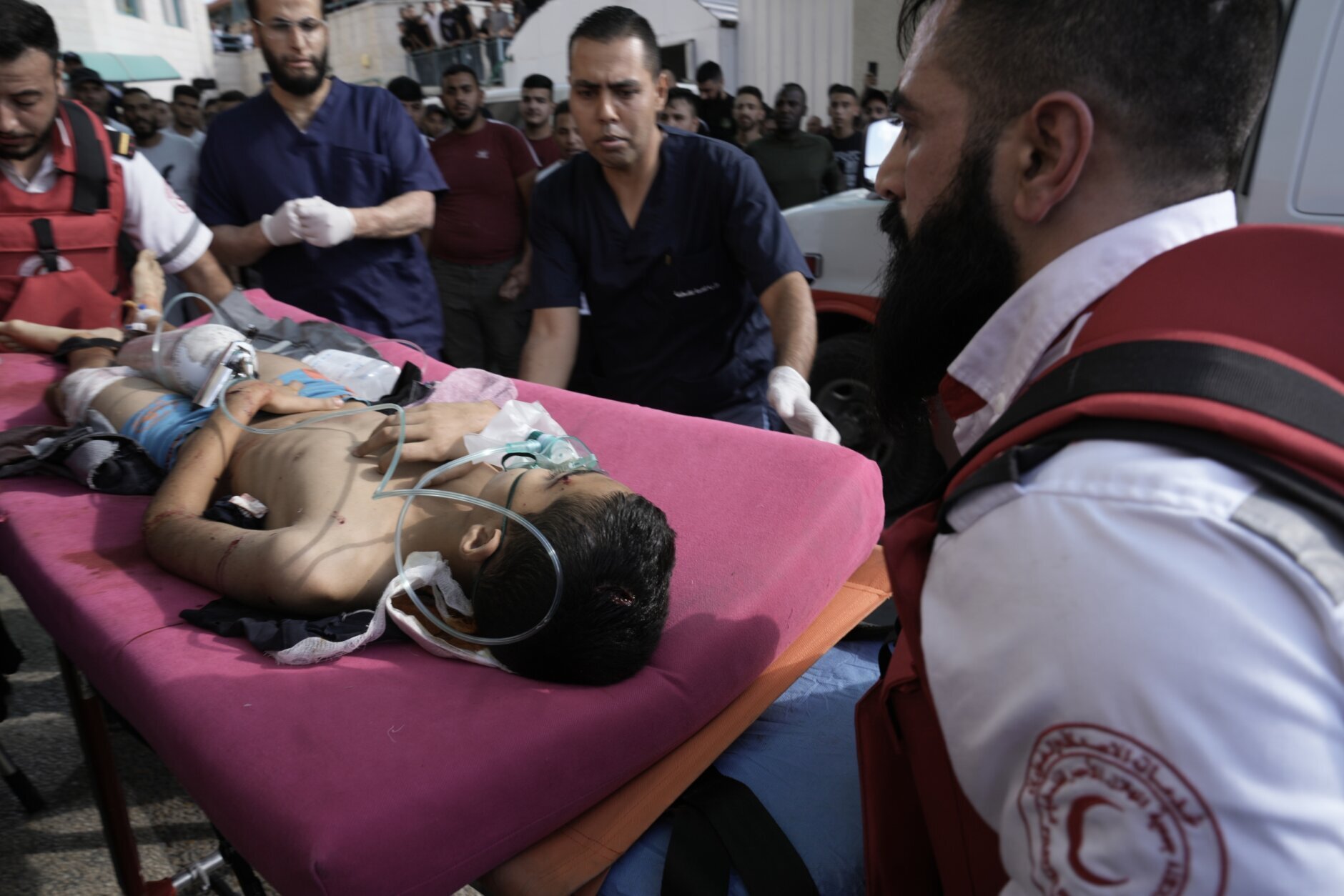
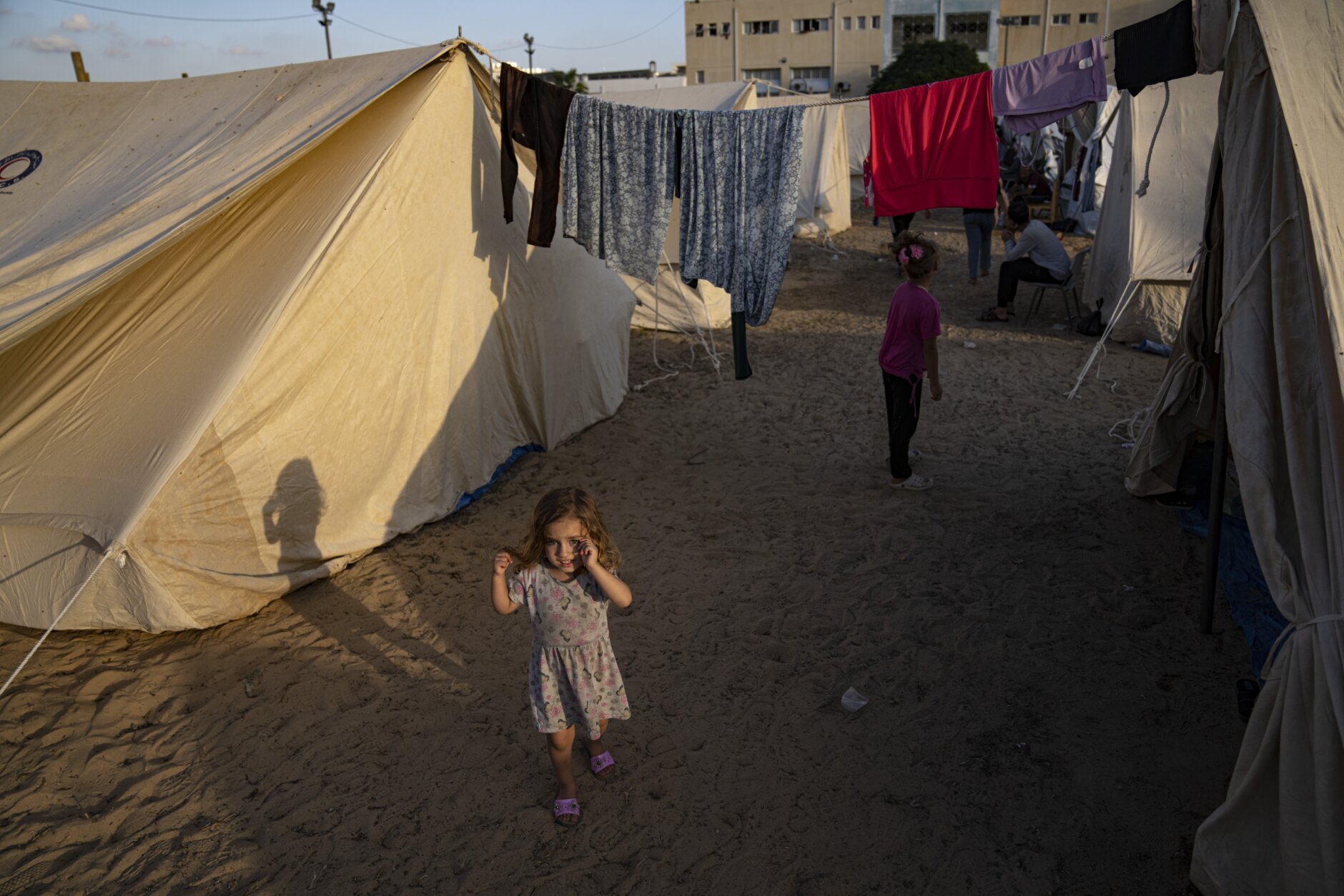
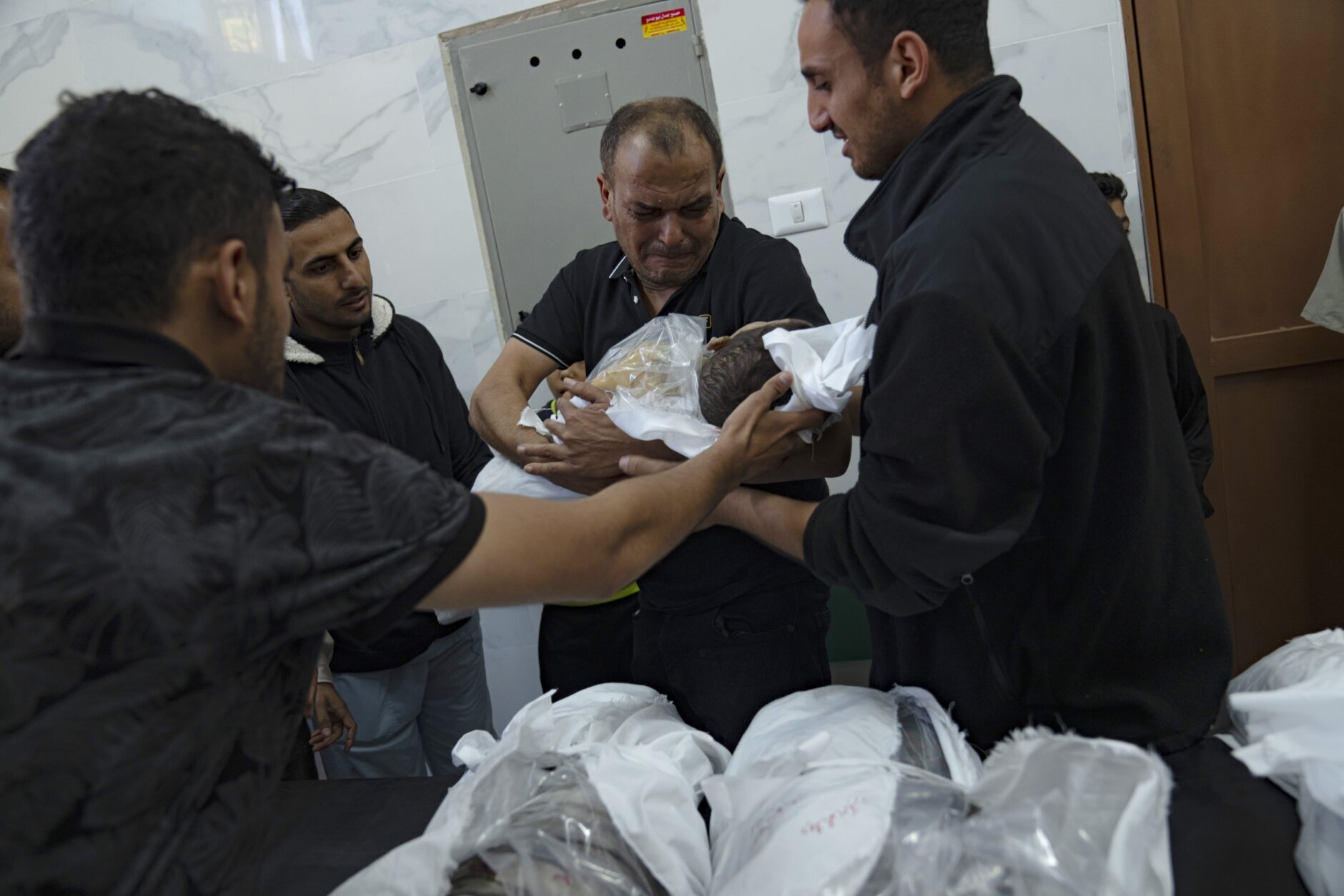
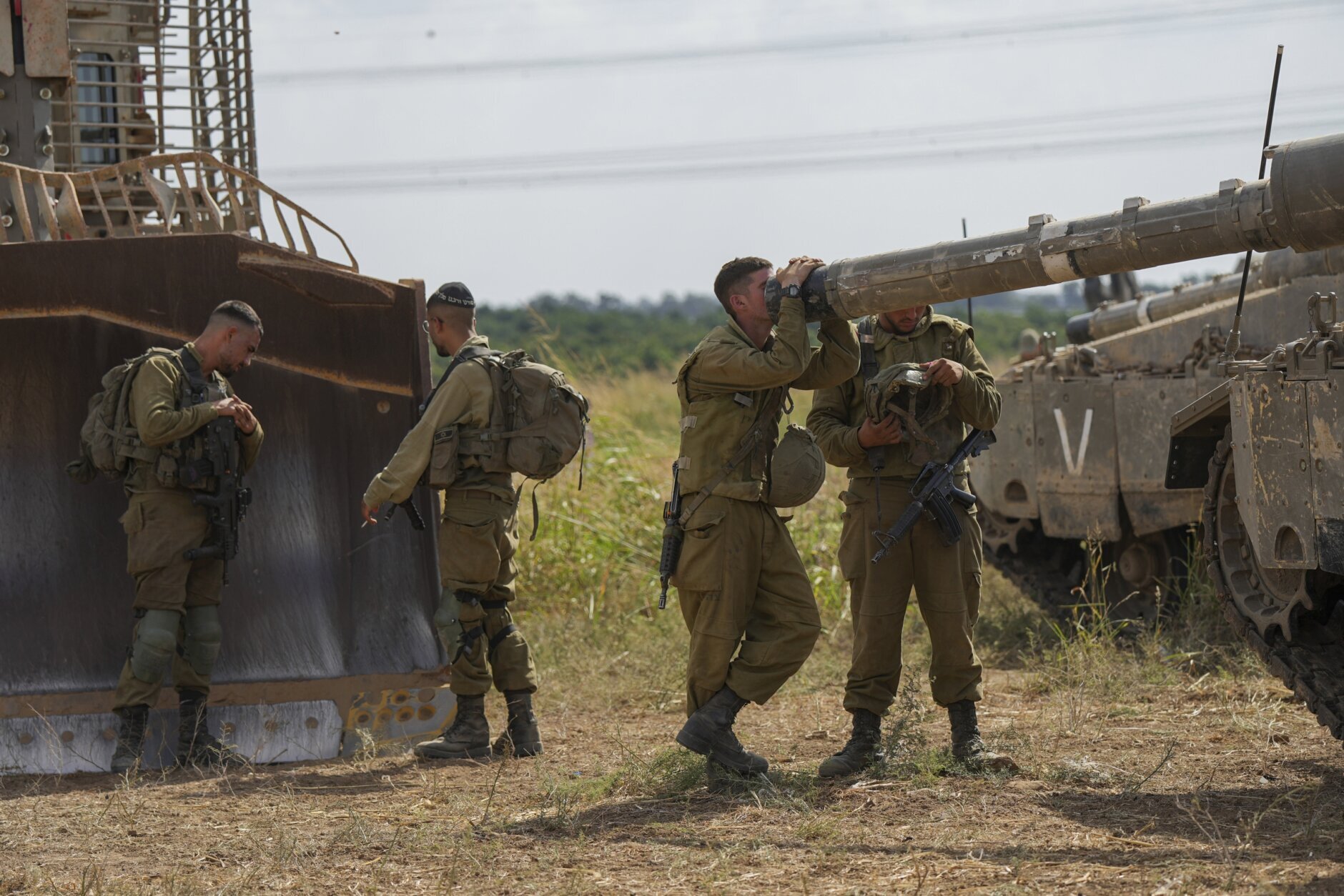
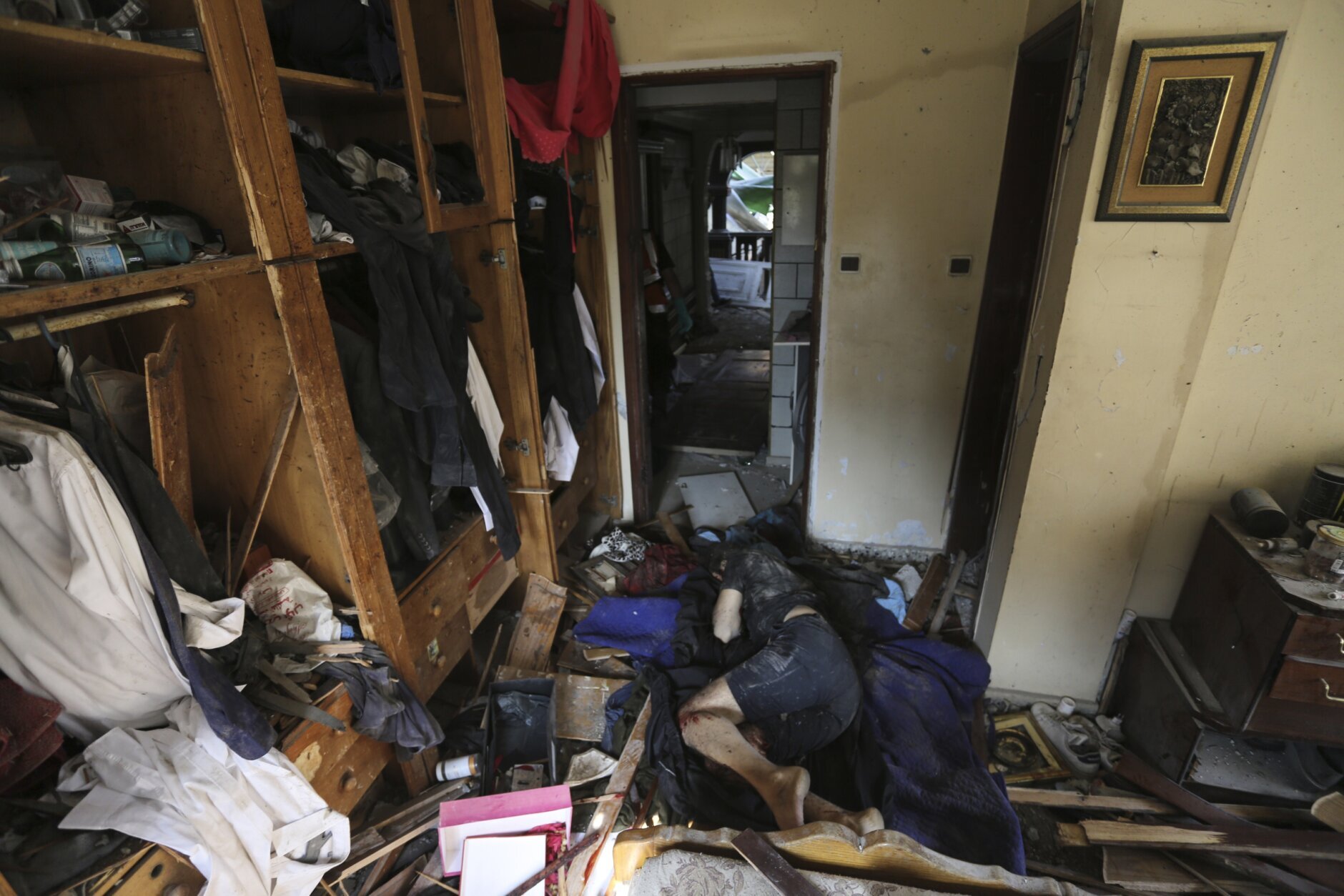
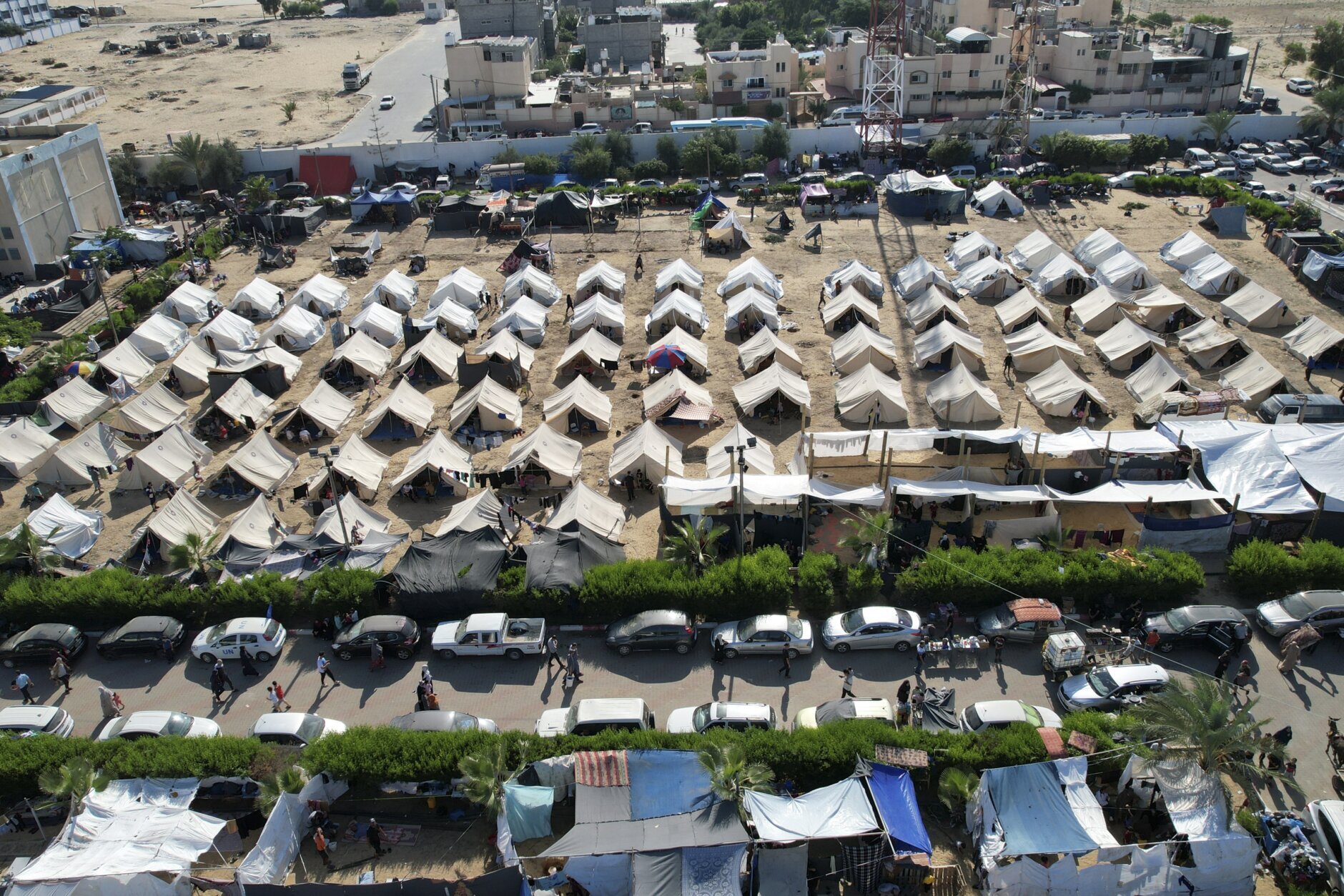
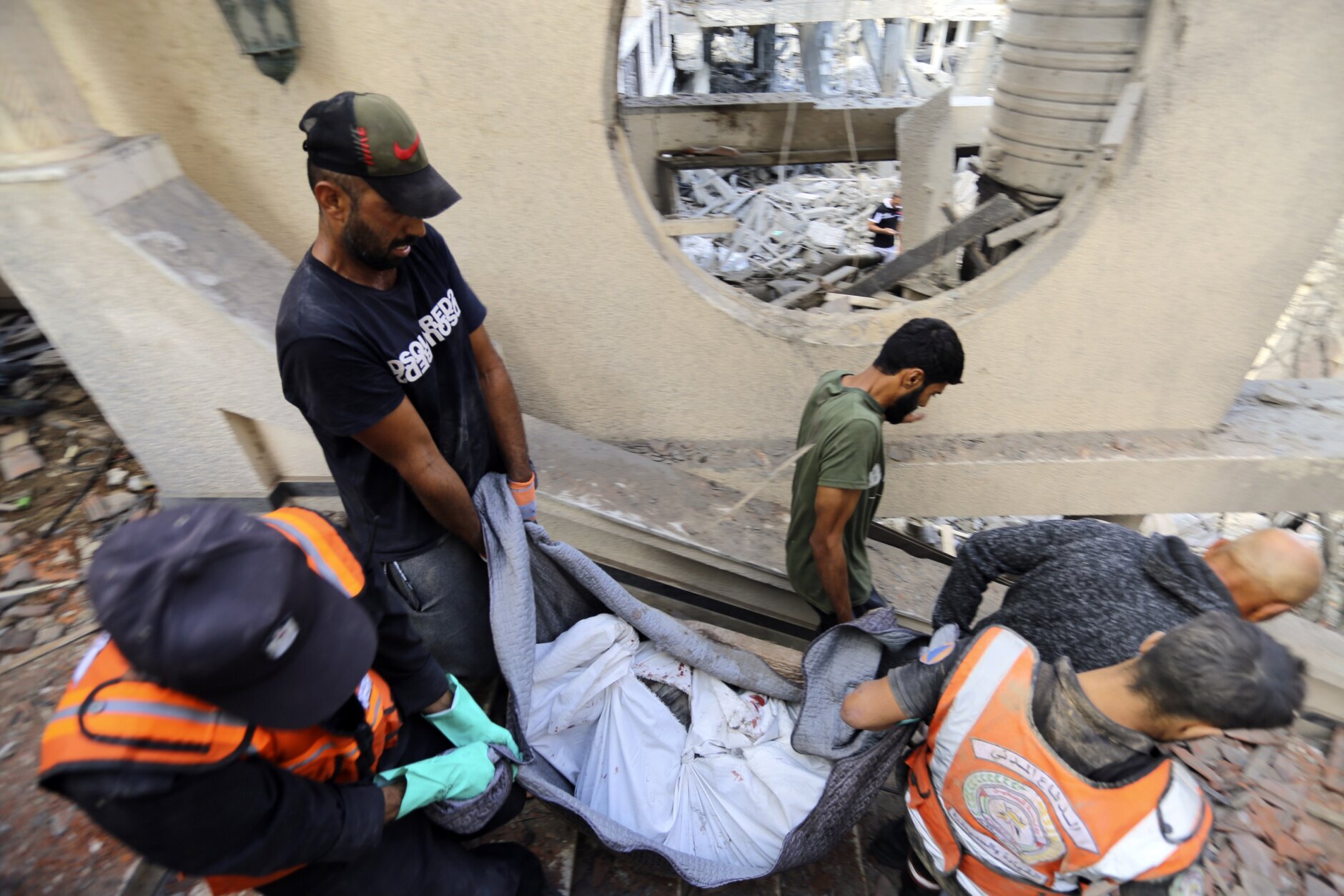
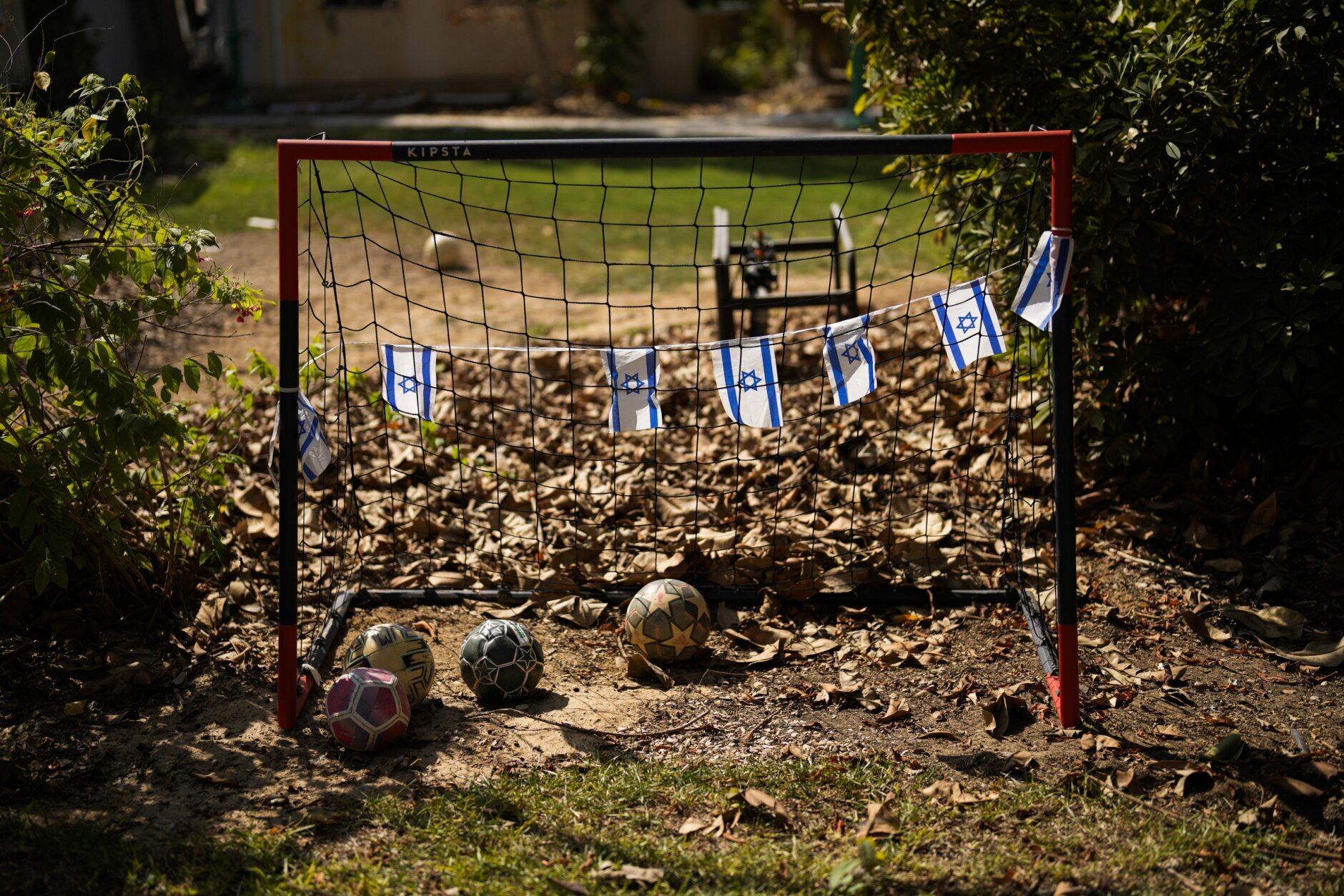
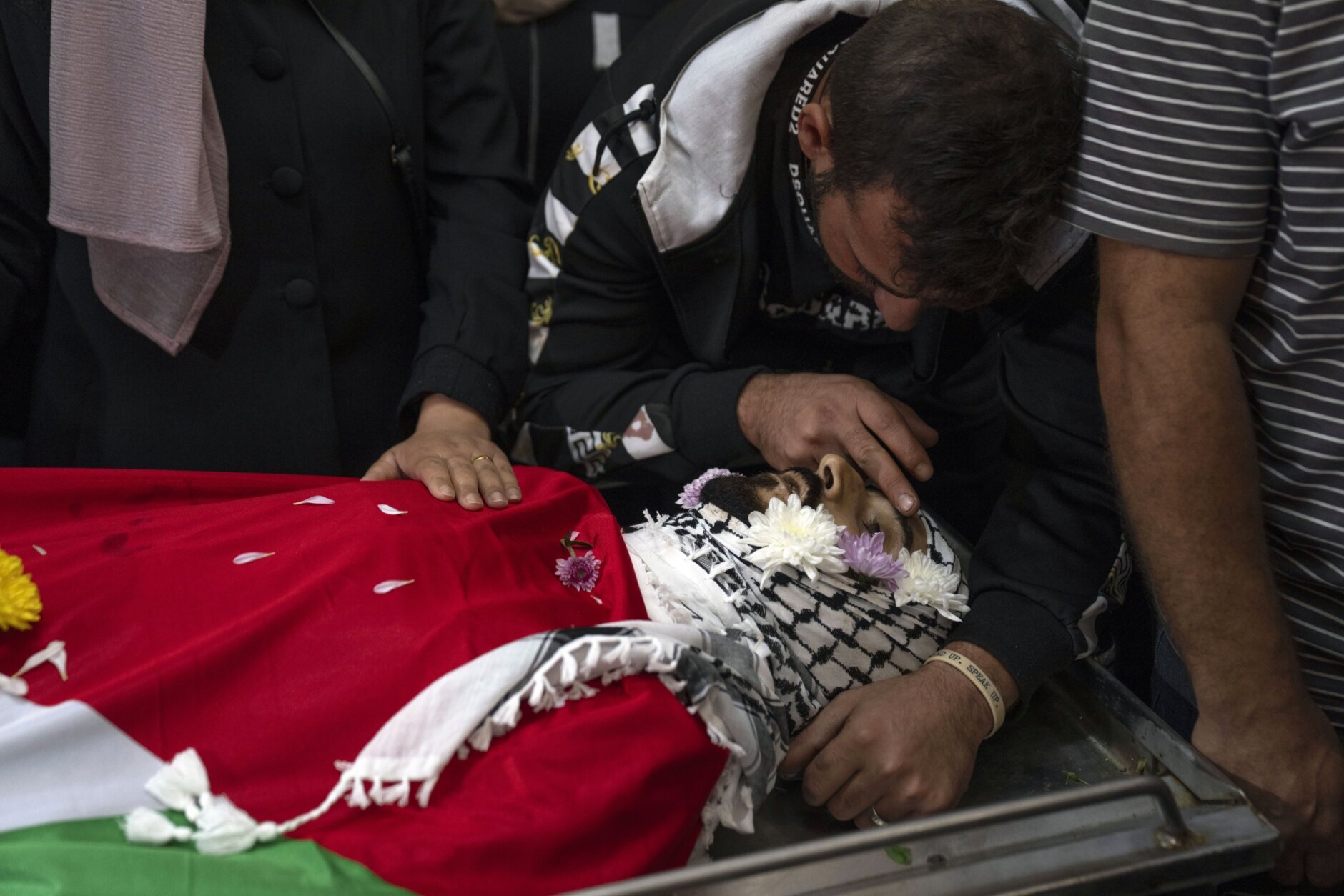
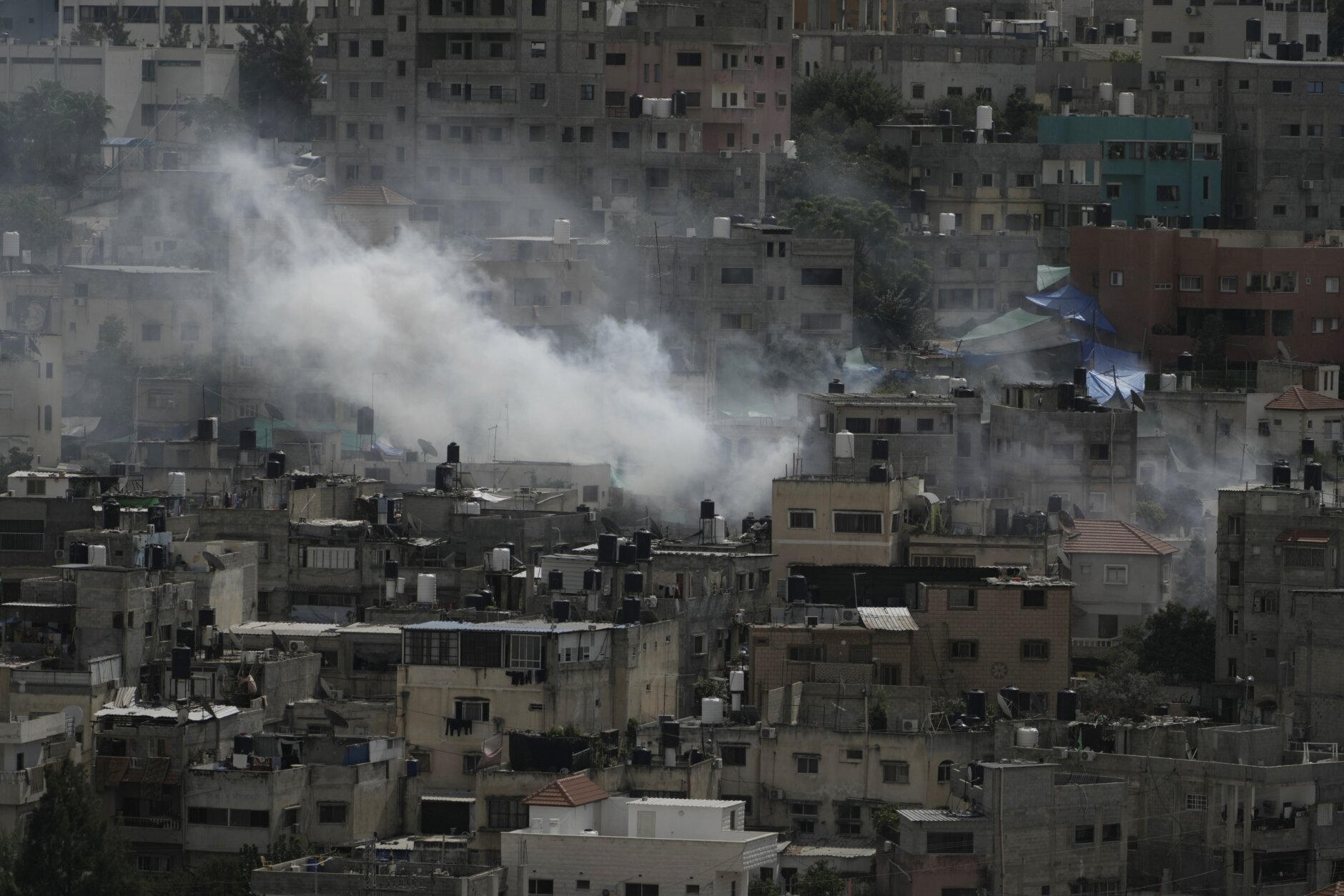
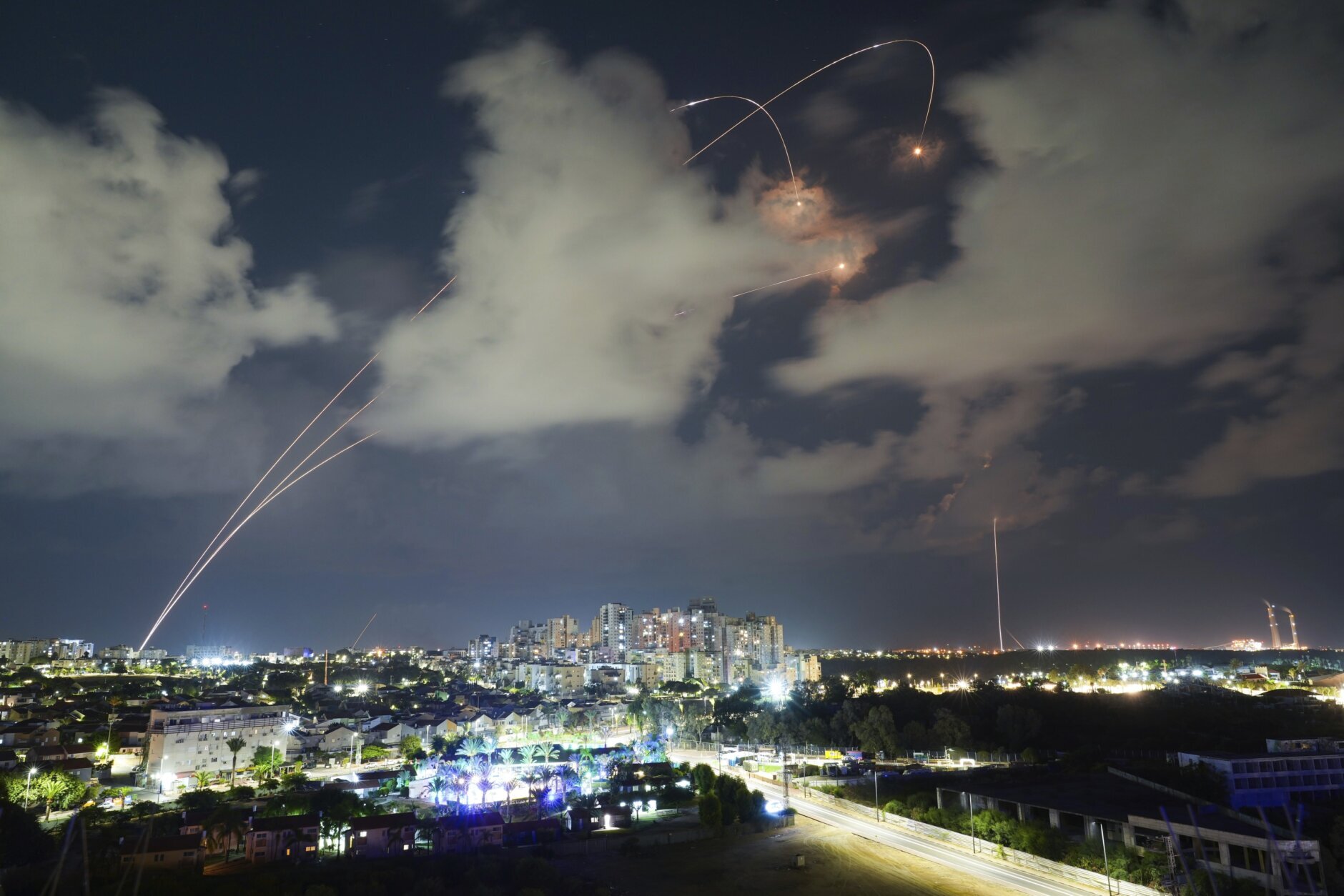
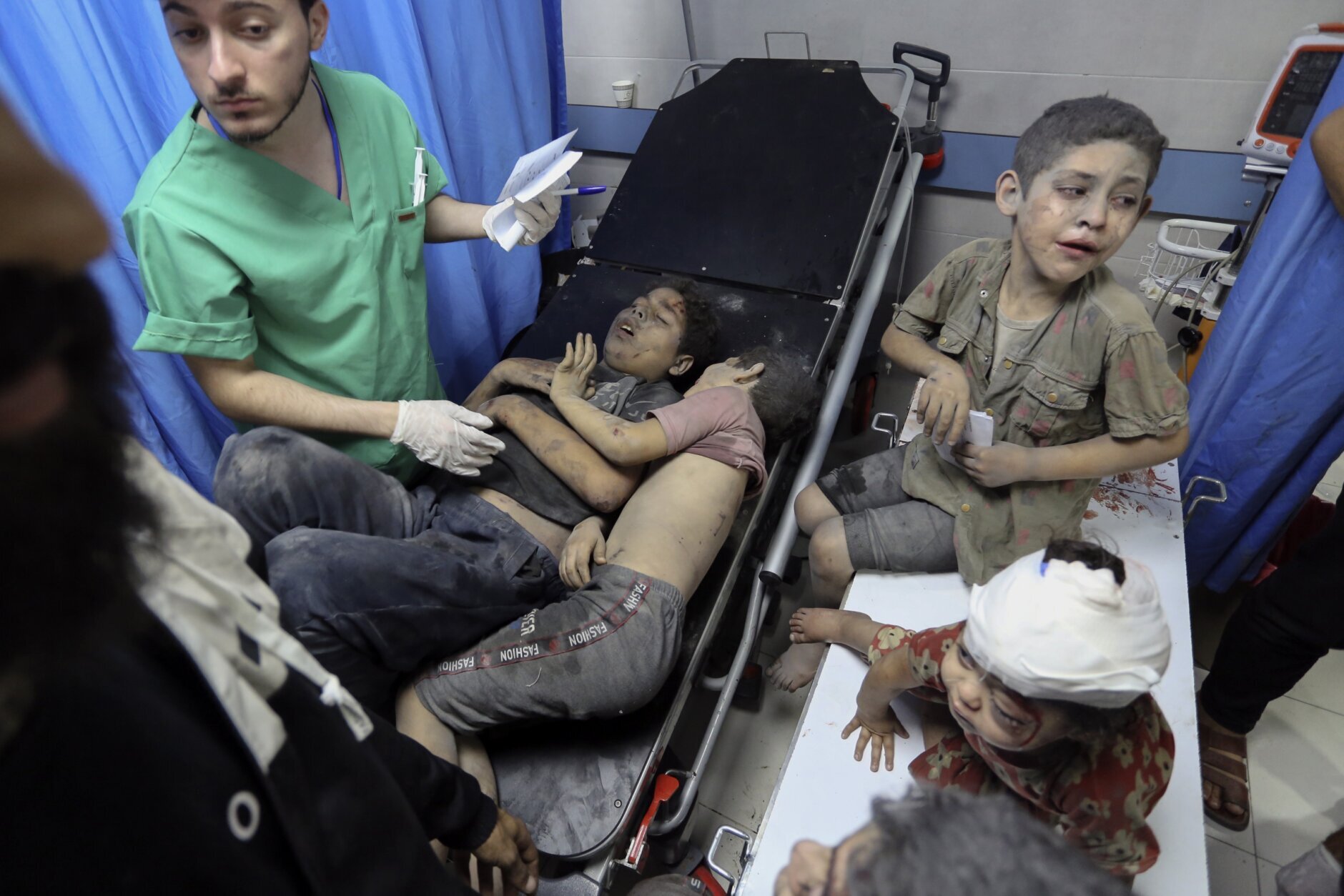
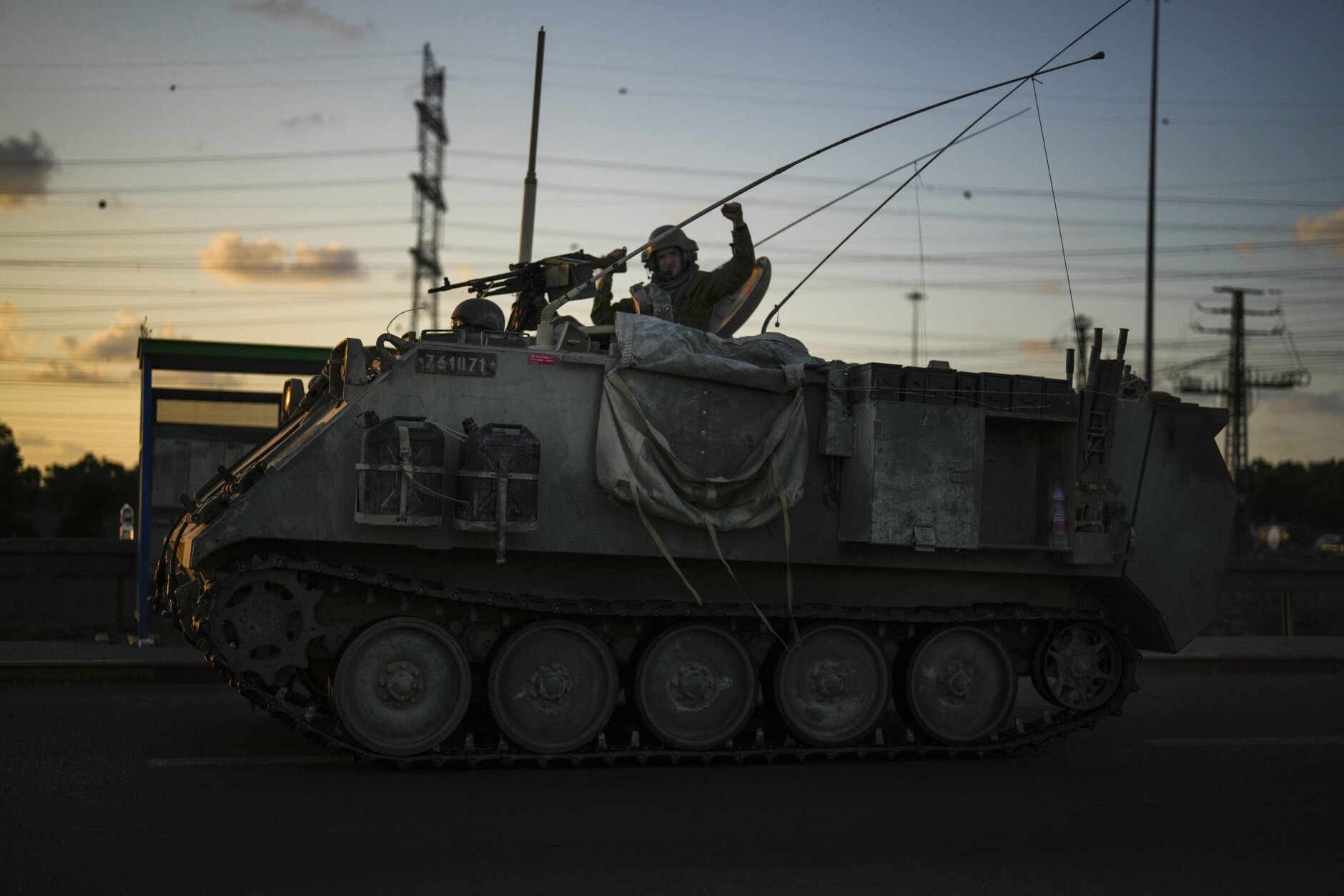
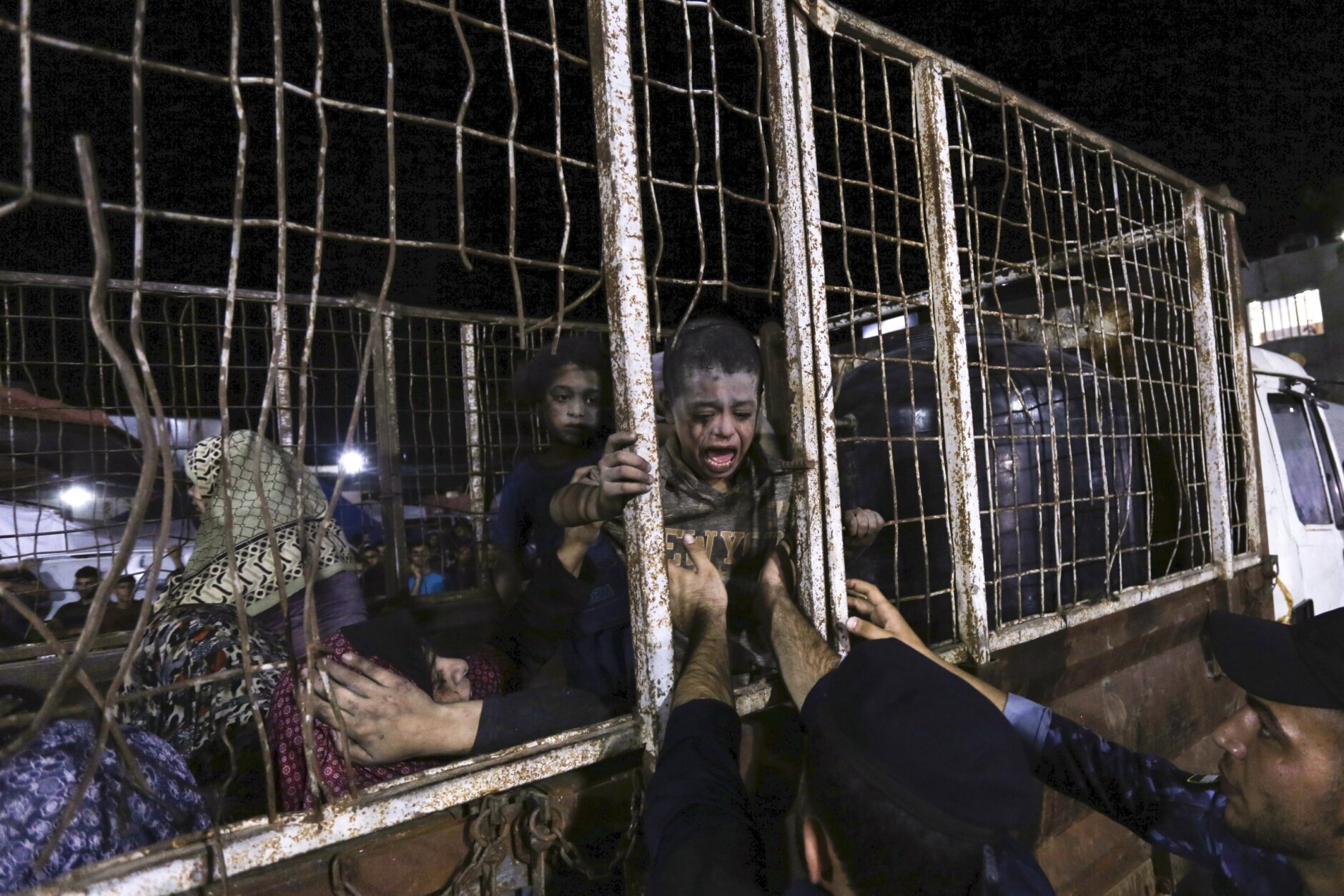
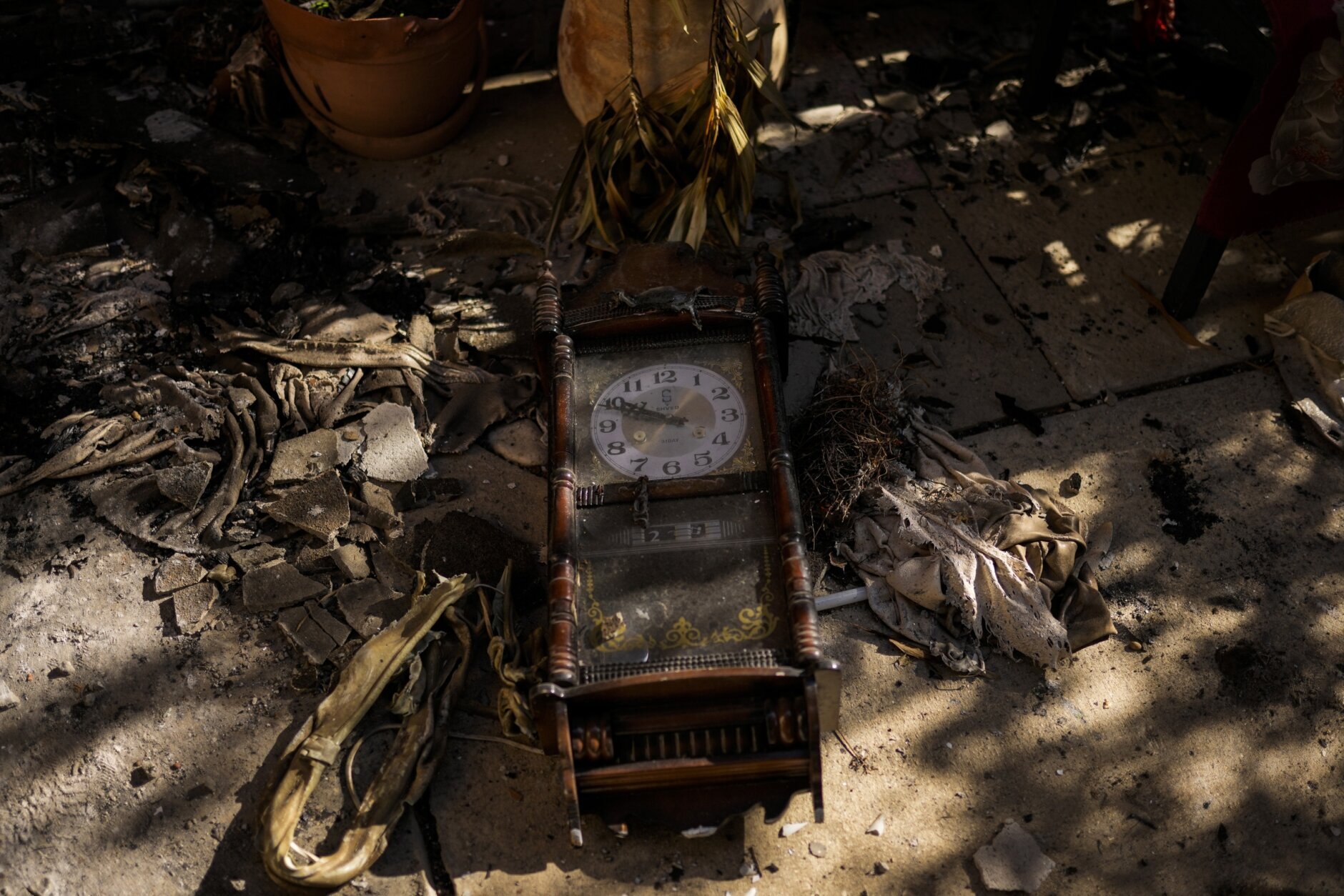
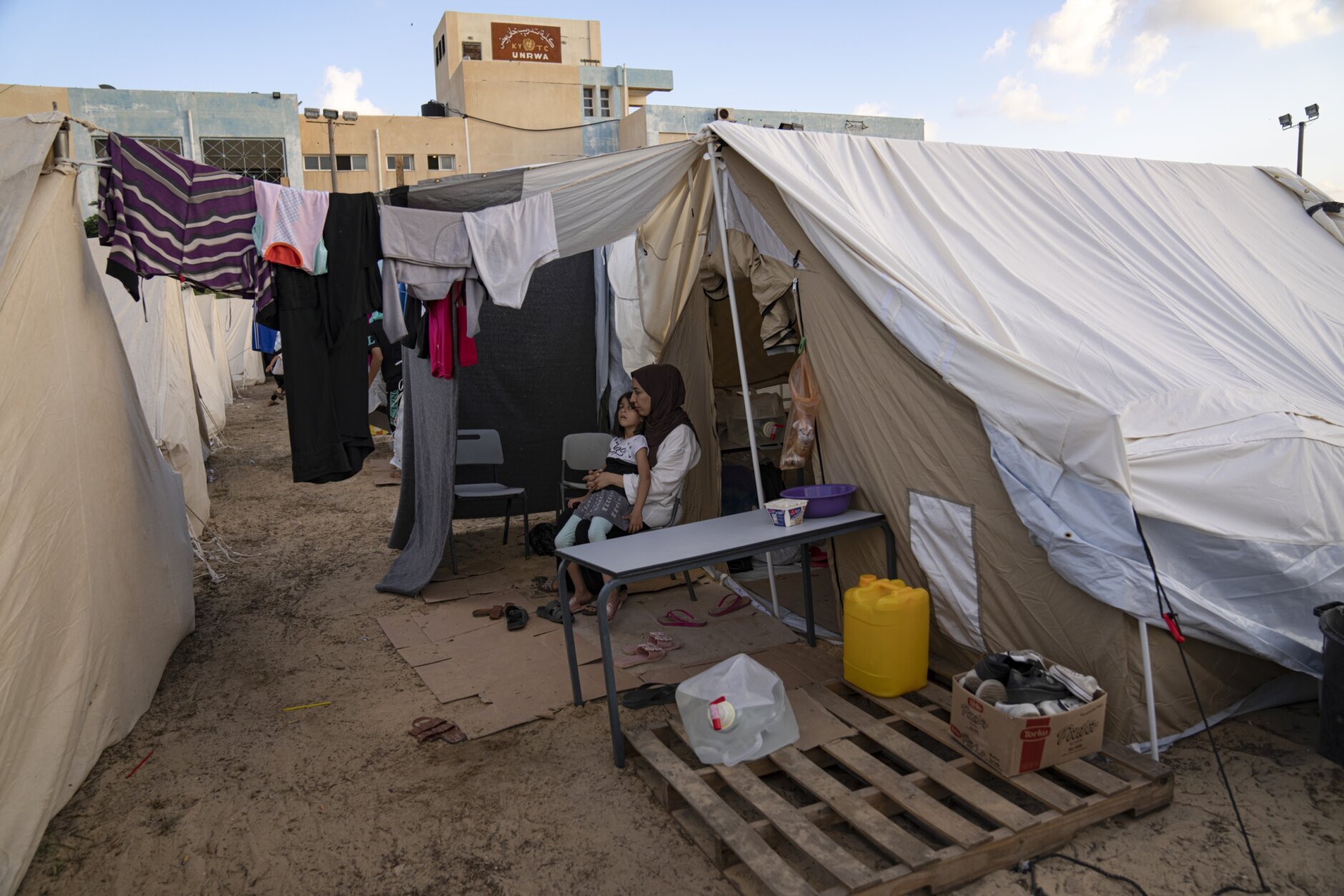
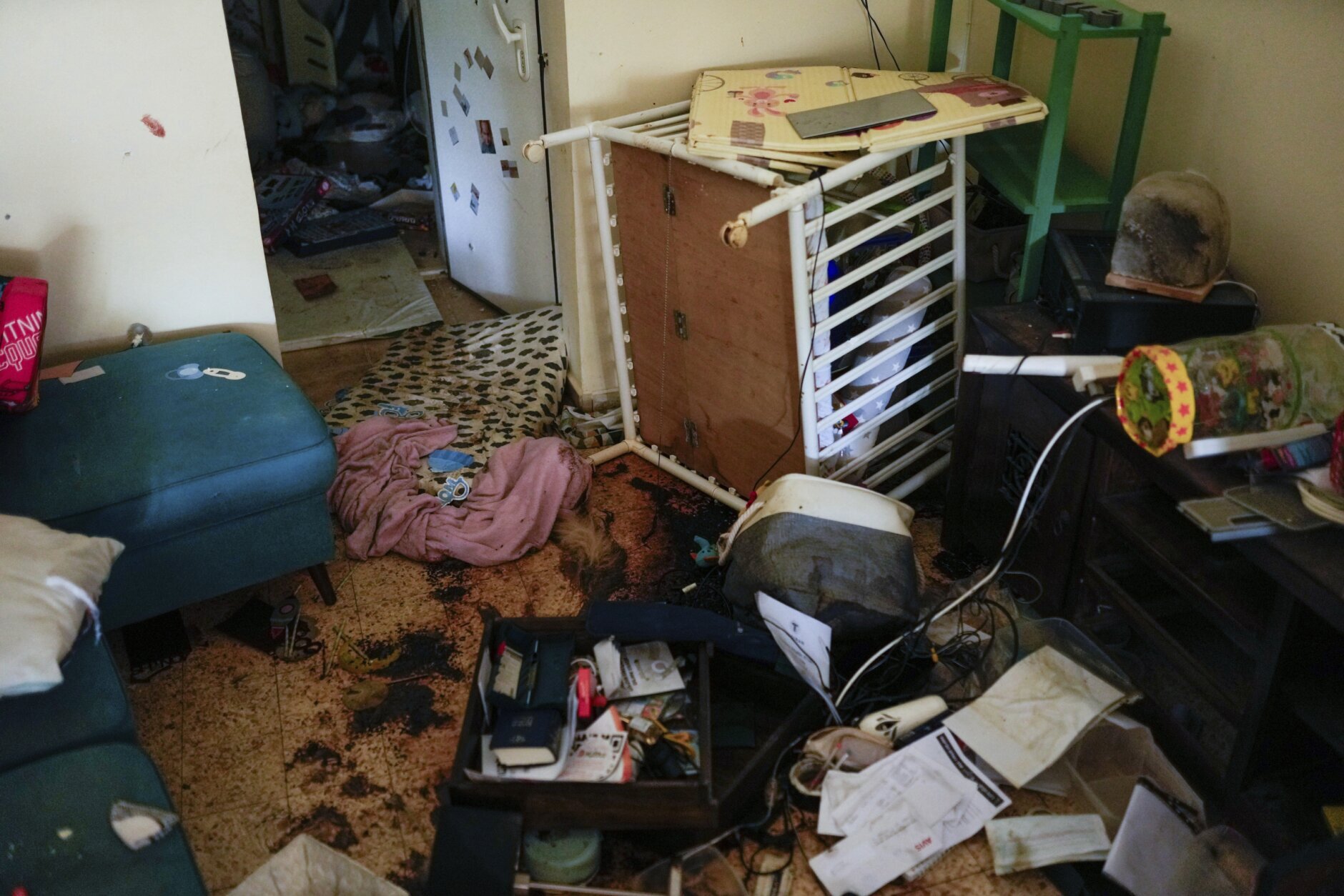
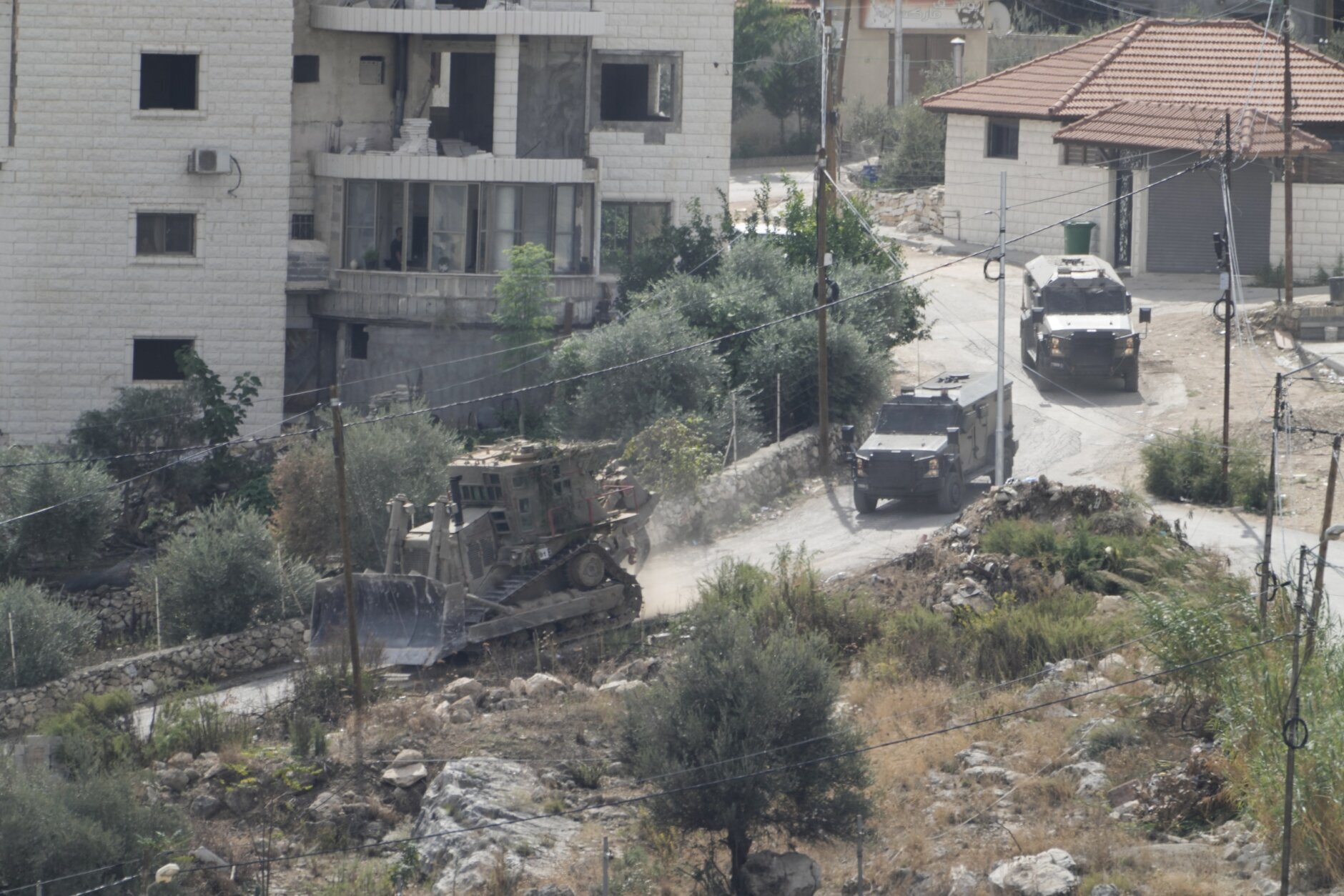
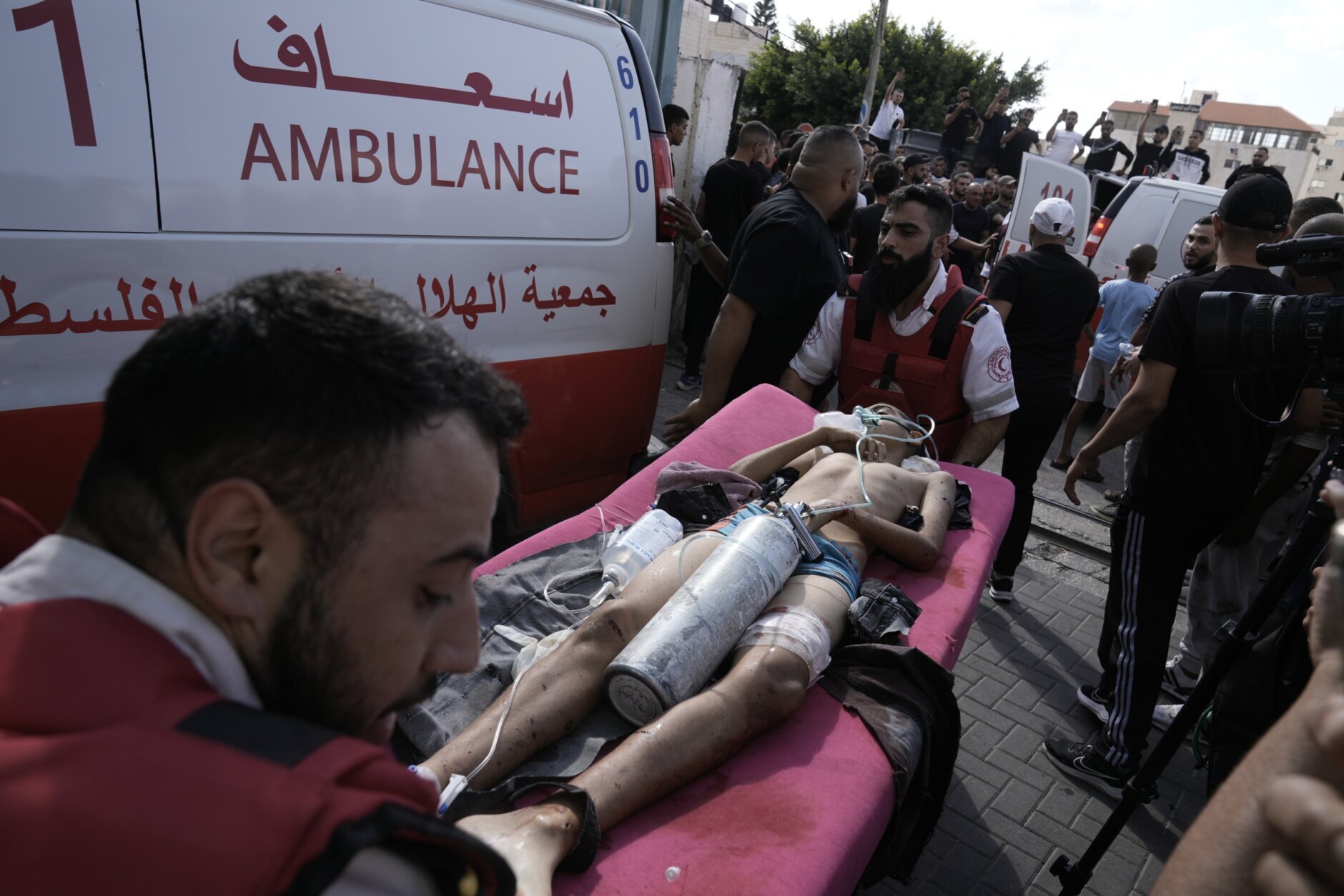
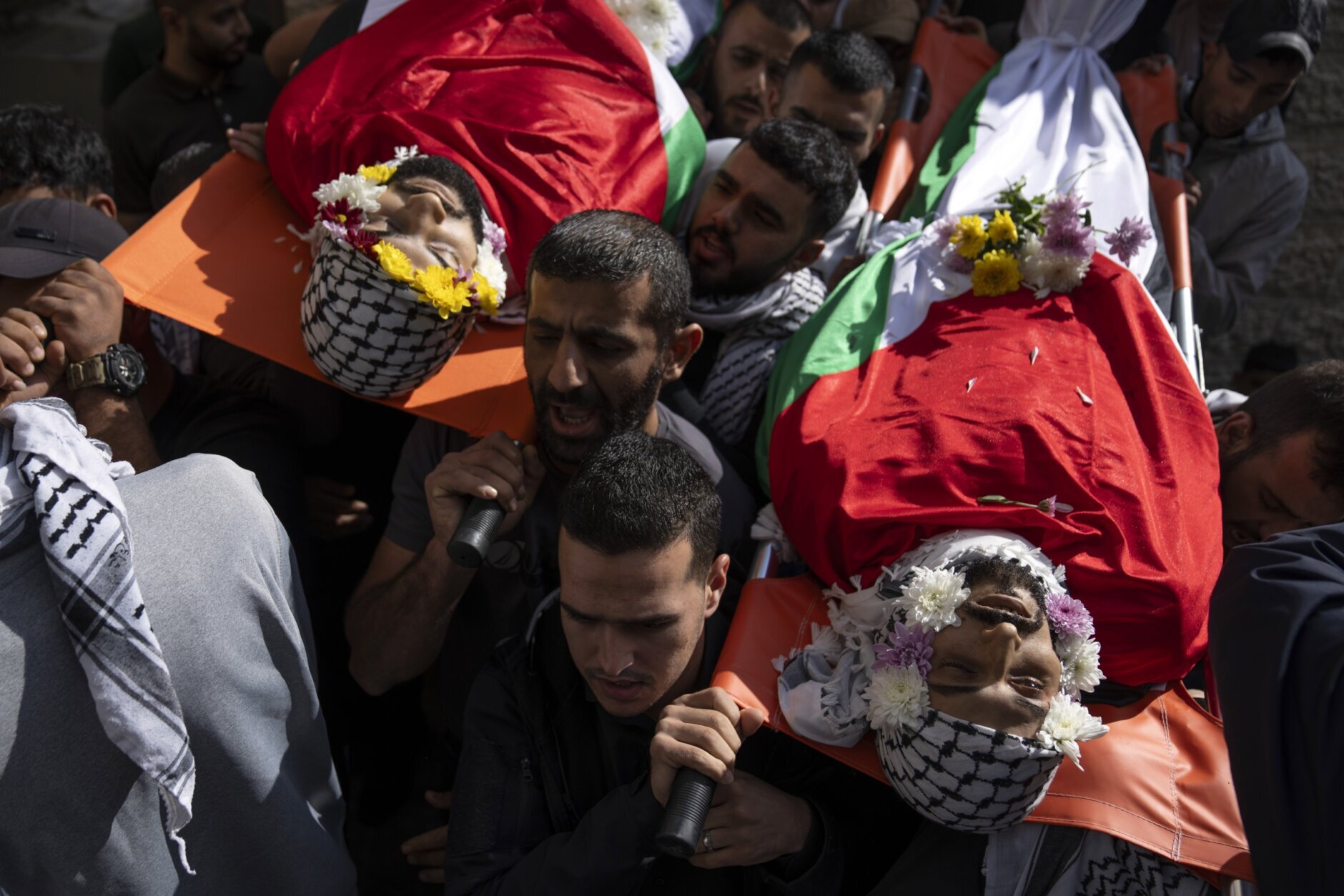
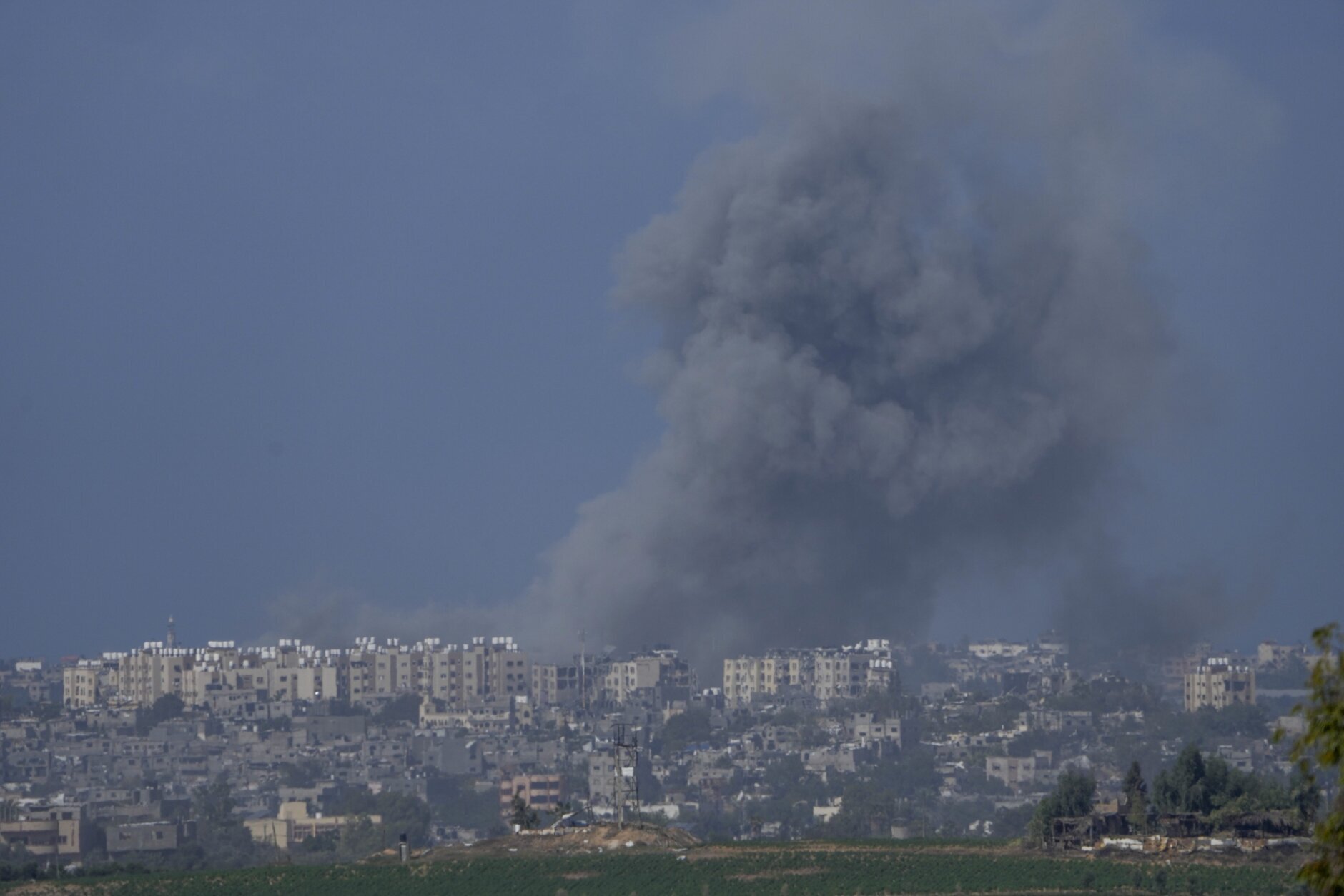
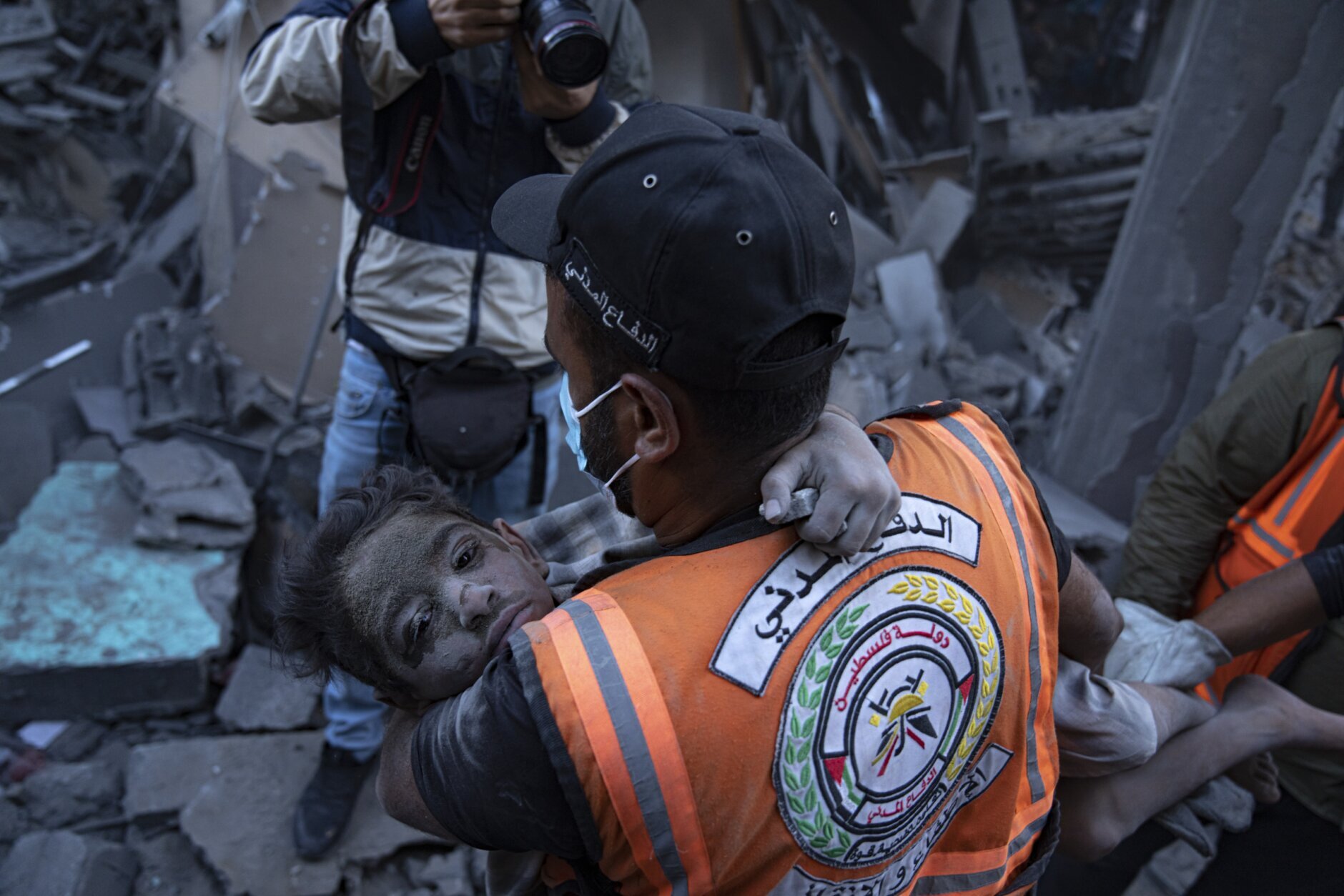
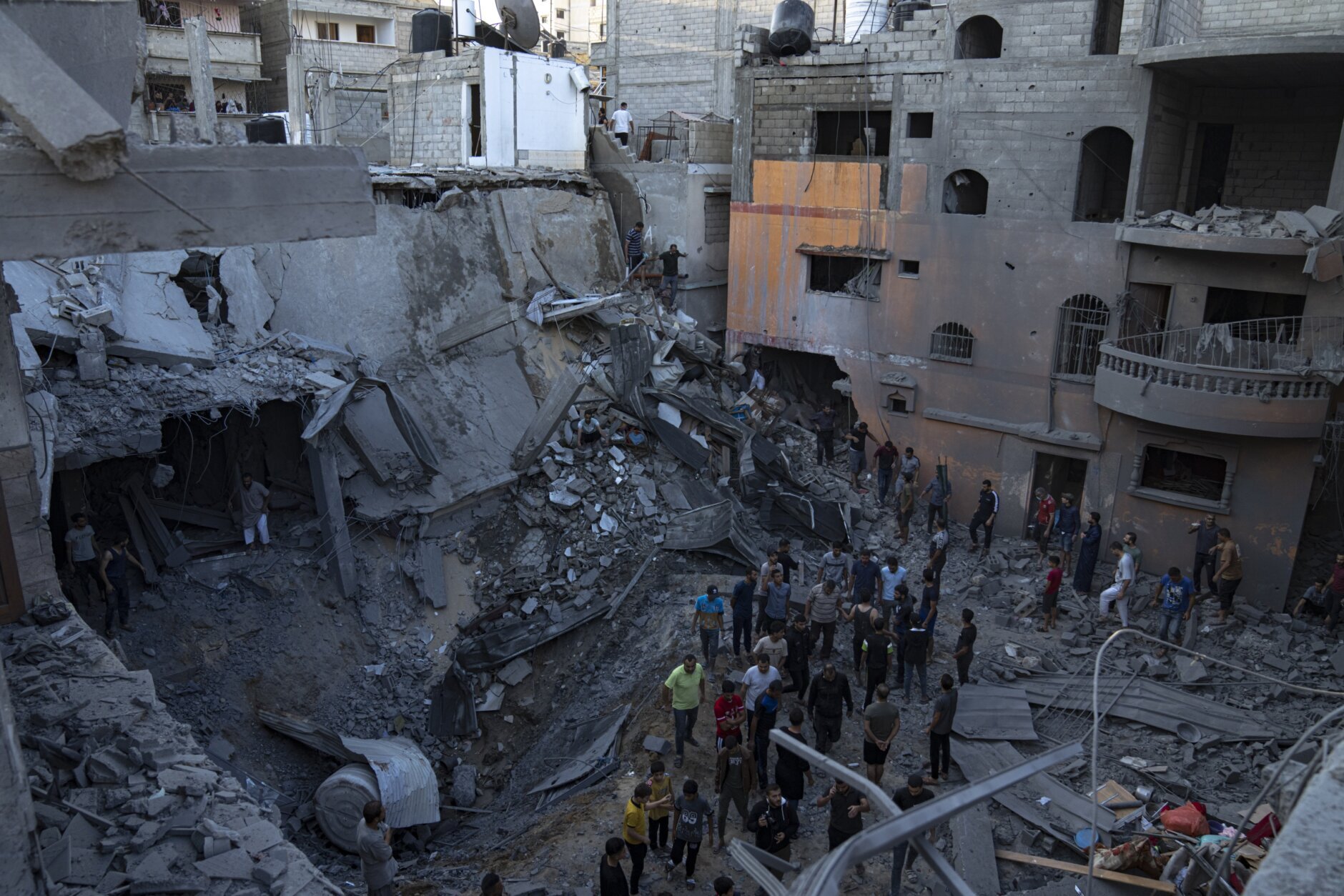
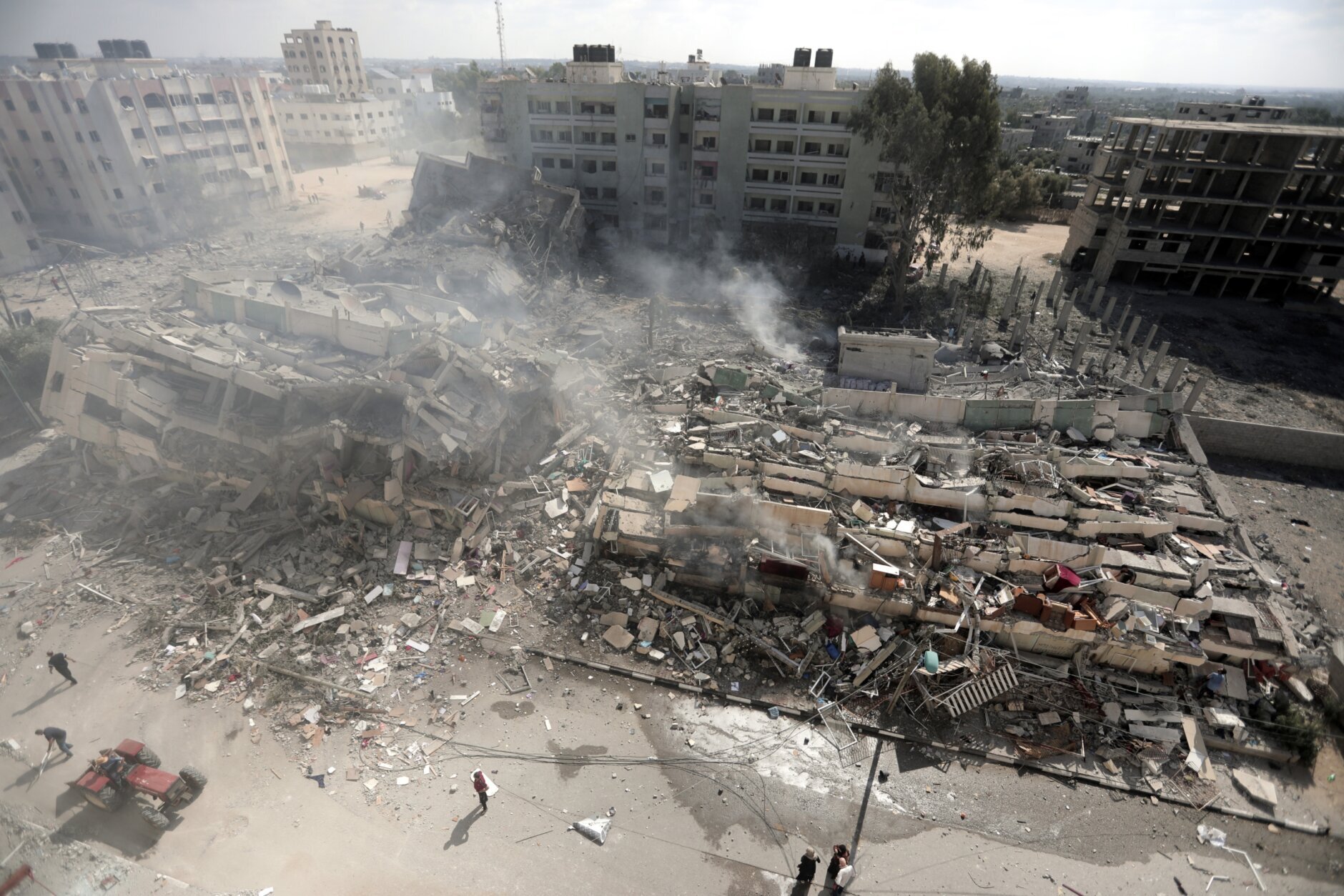
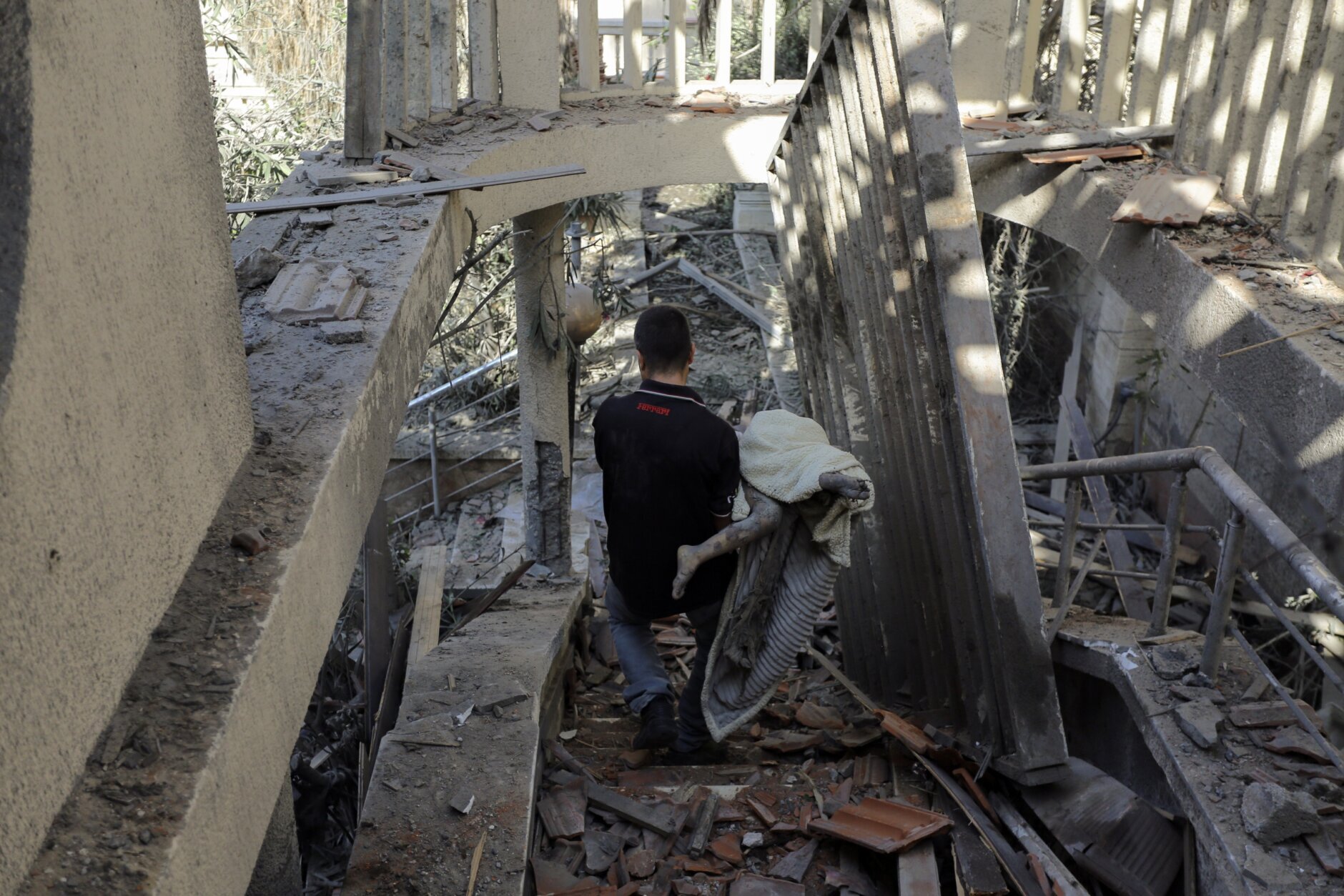
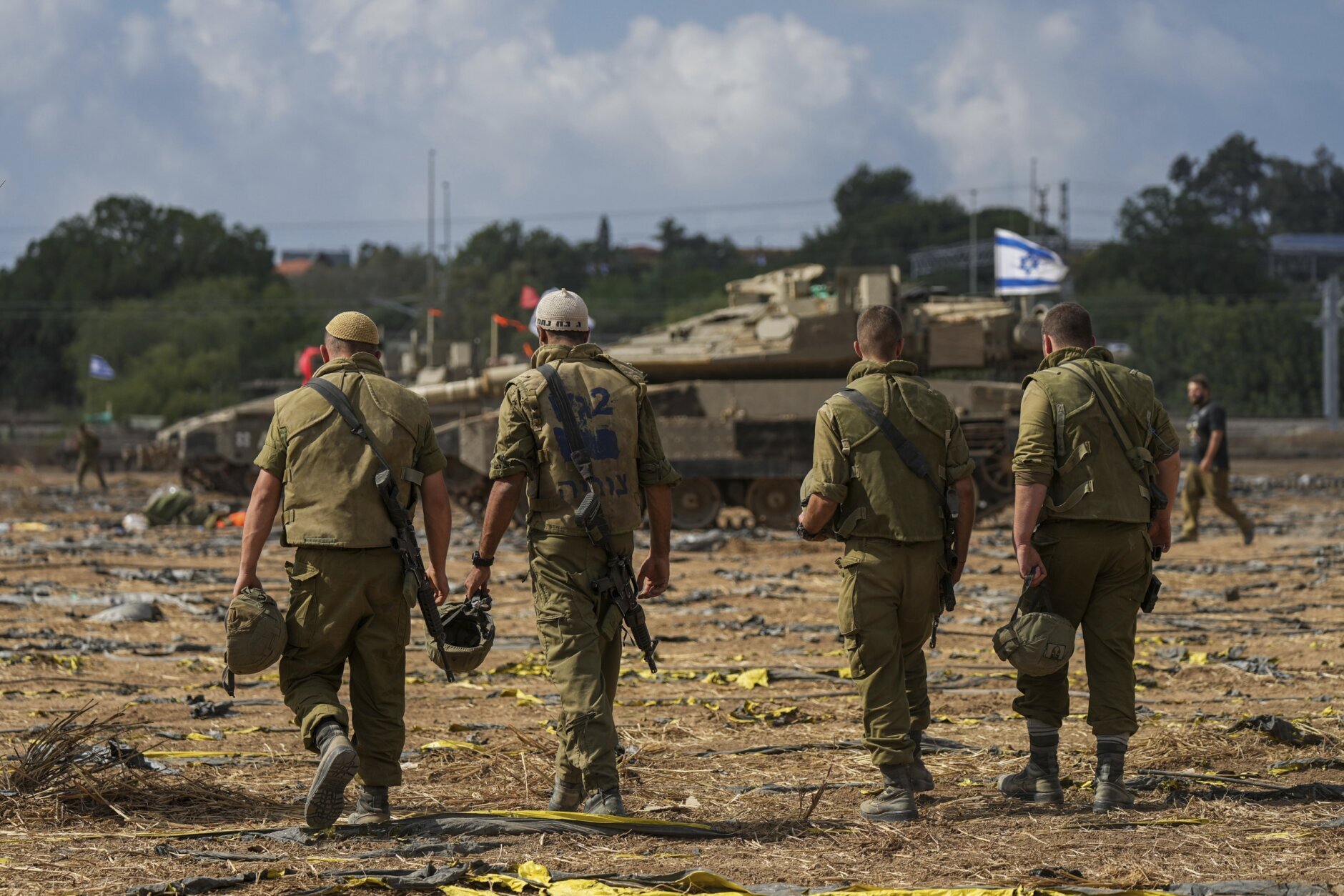
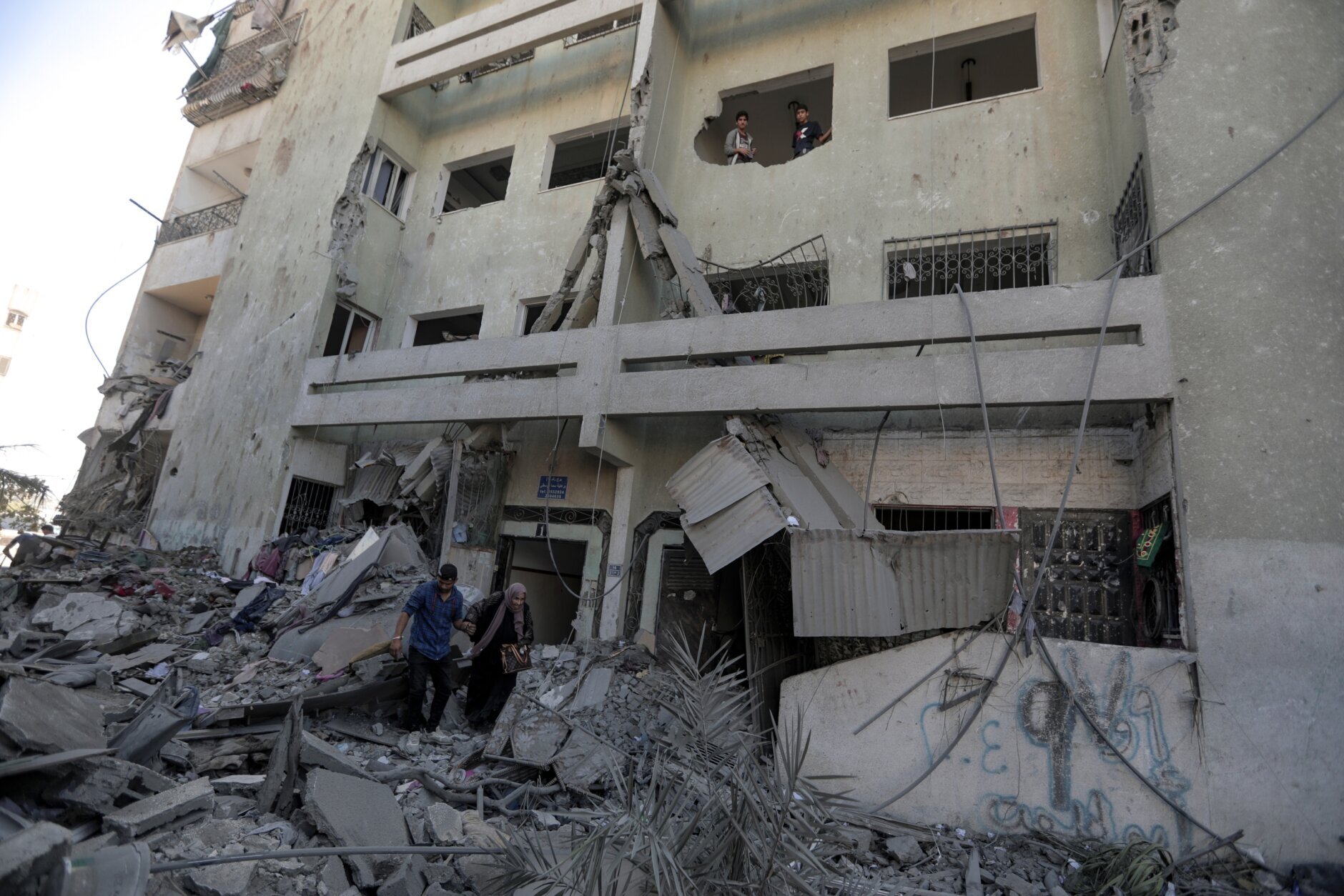 Israel Palestinians Palestinians leave a partially destroyed building following Israeli airstrikes on Gaza City, central Gaza Strip, Thursday, Oct. 19, 2023. (AP Photo/Mohammed Dahman)
Israel Palestinians Palestinians leave a partially destroyed building following Israeli airstrikes on Gaza City, central Gaza Strip, Thursday, Oct. 19, 2023. (AP Photo/Mohammed Dahman)